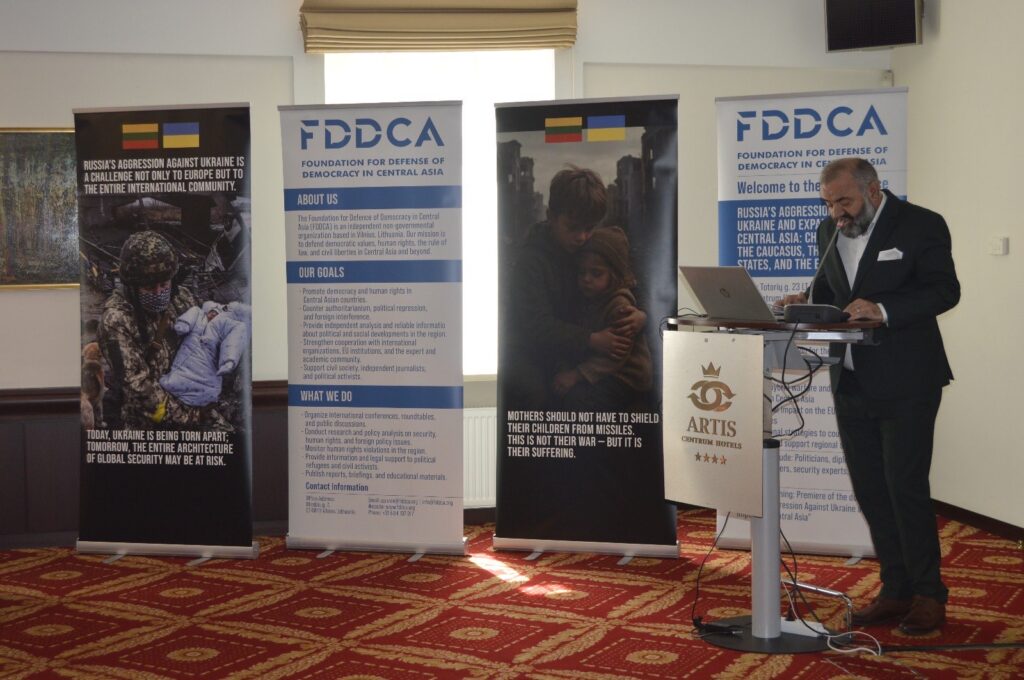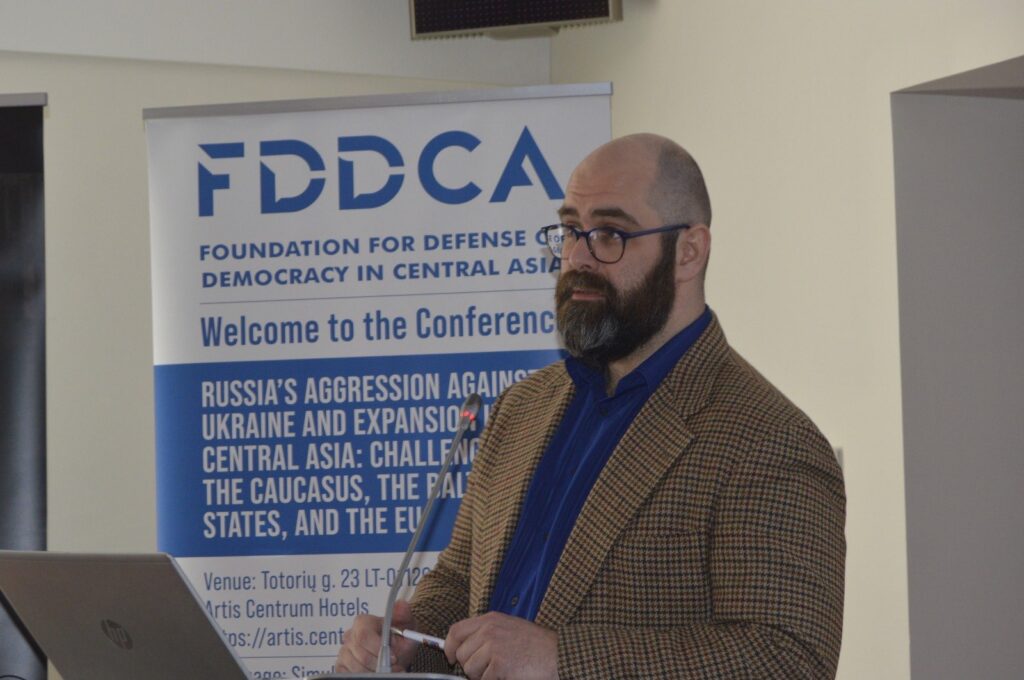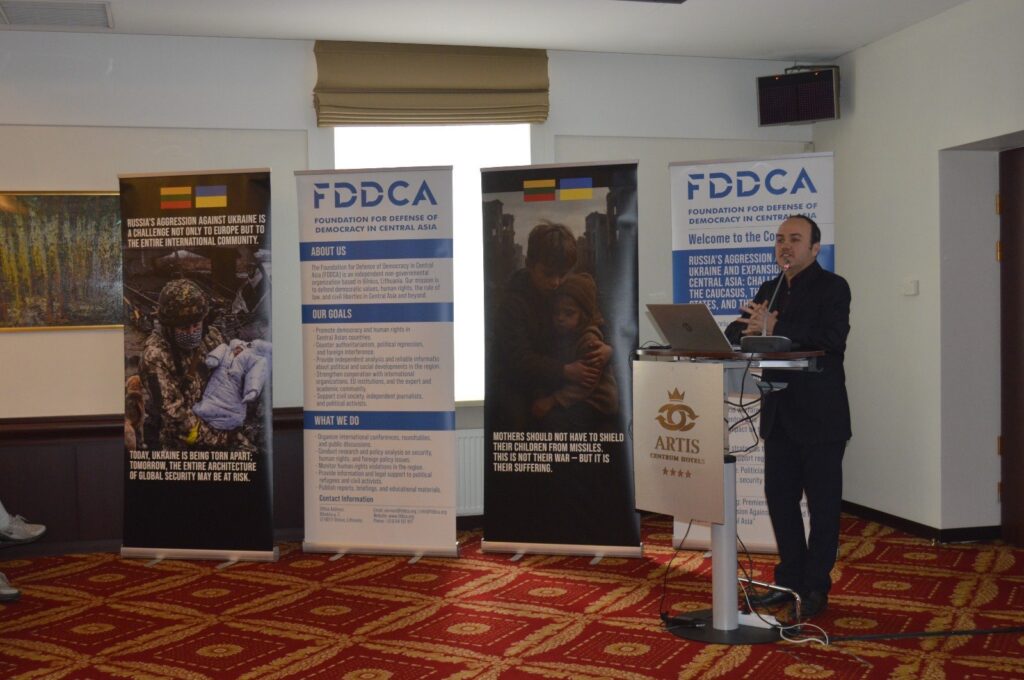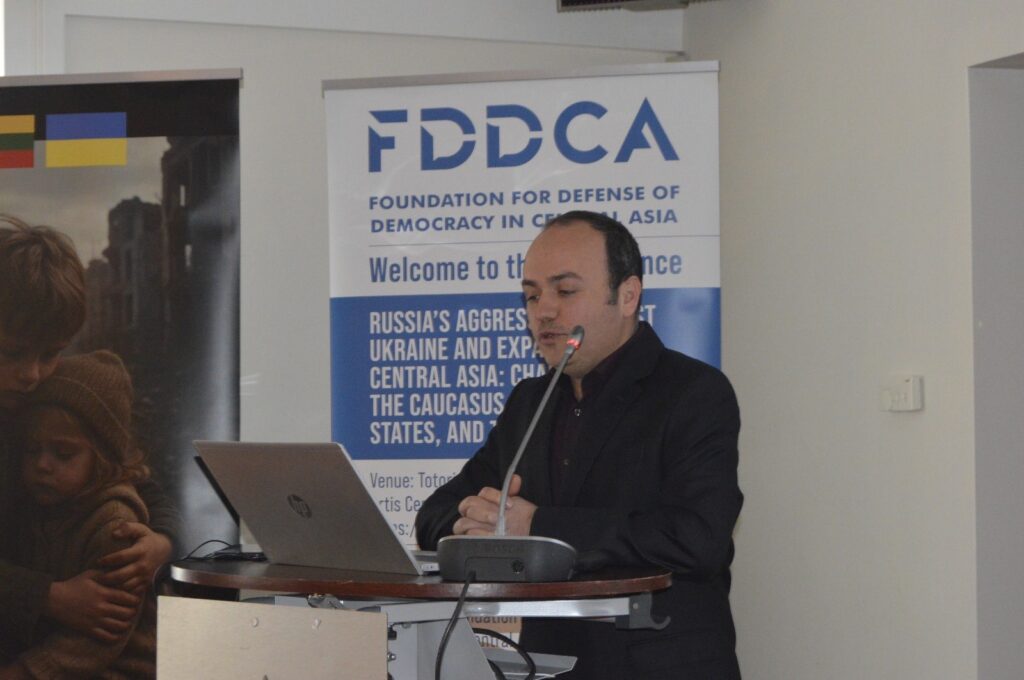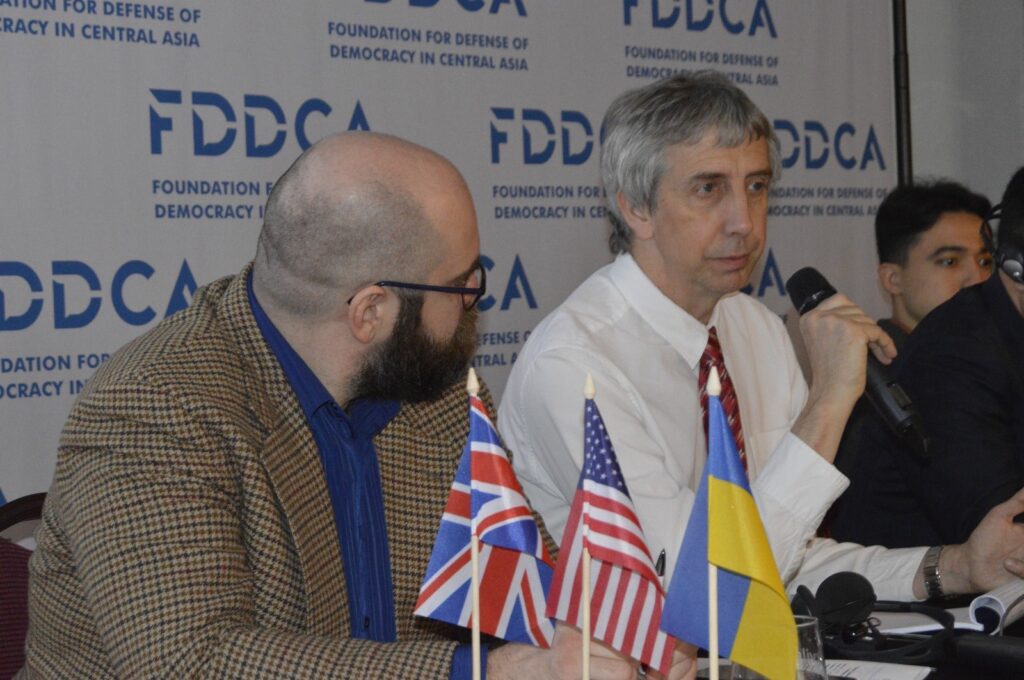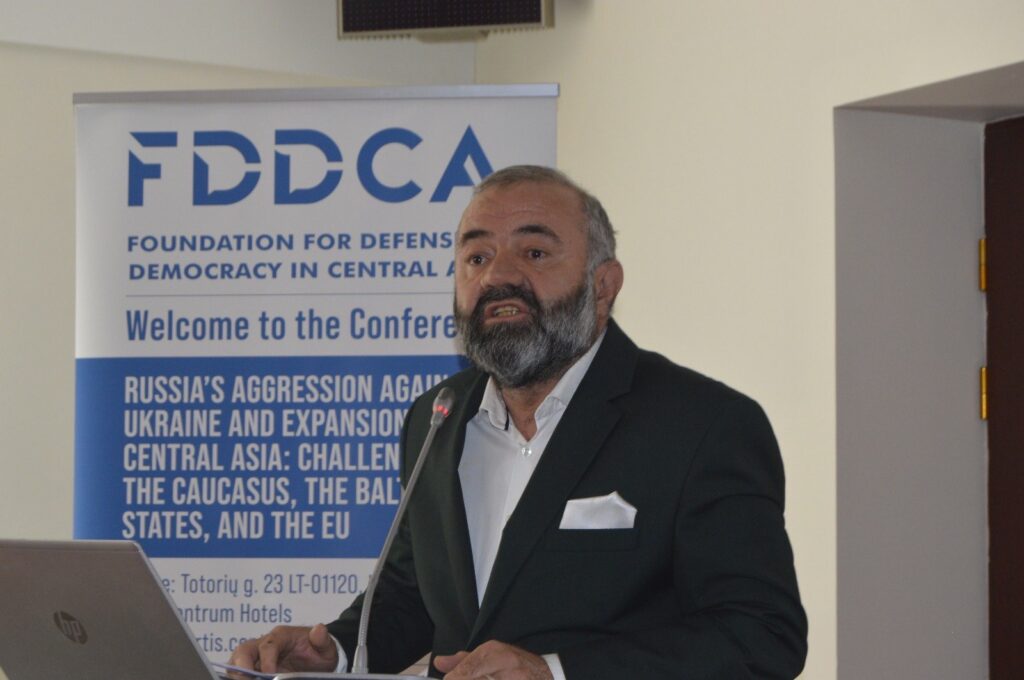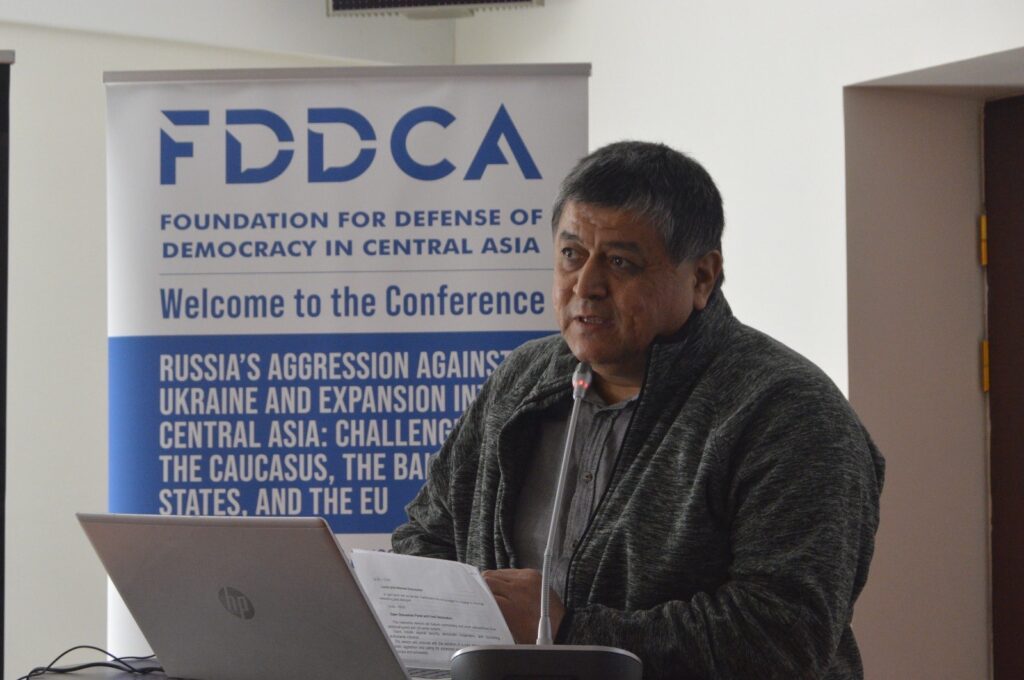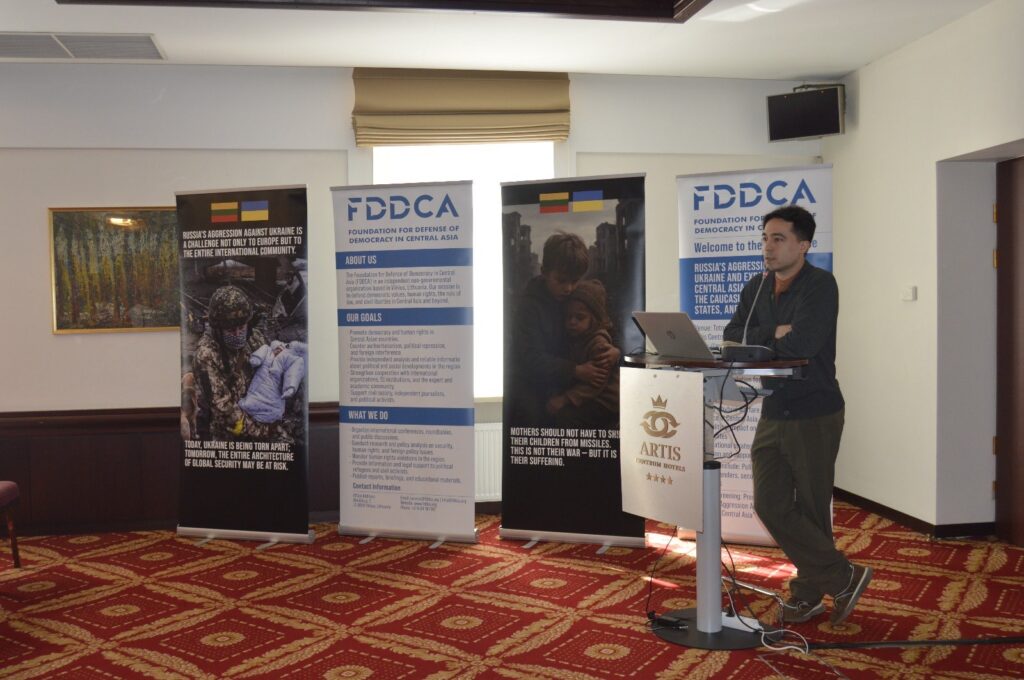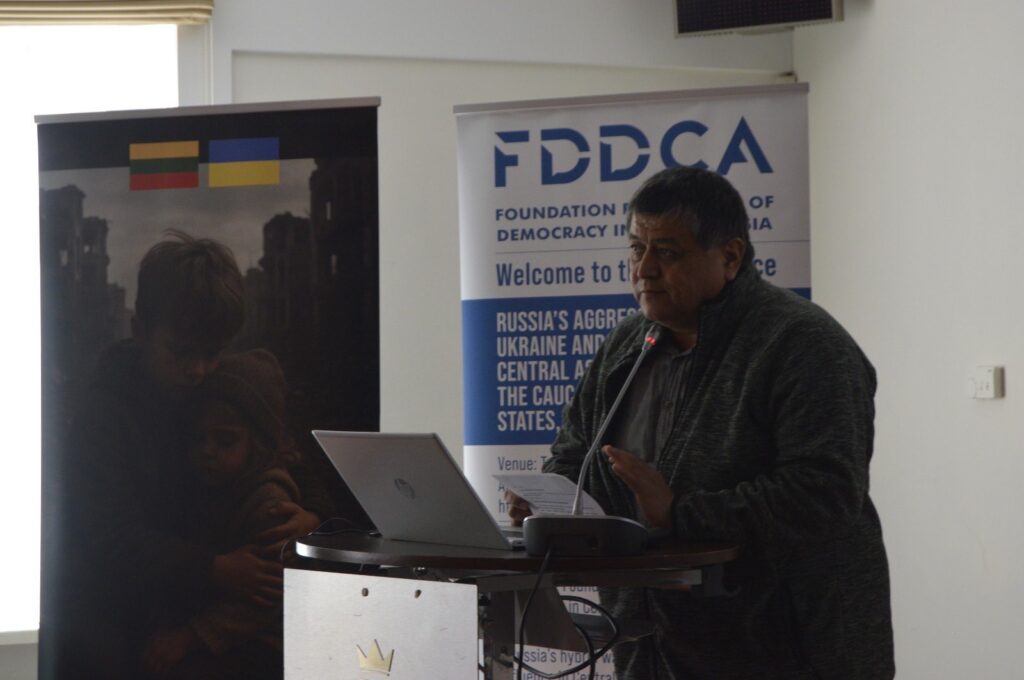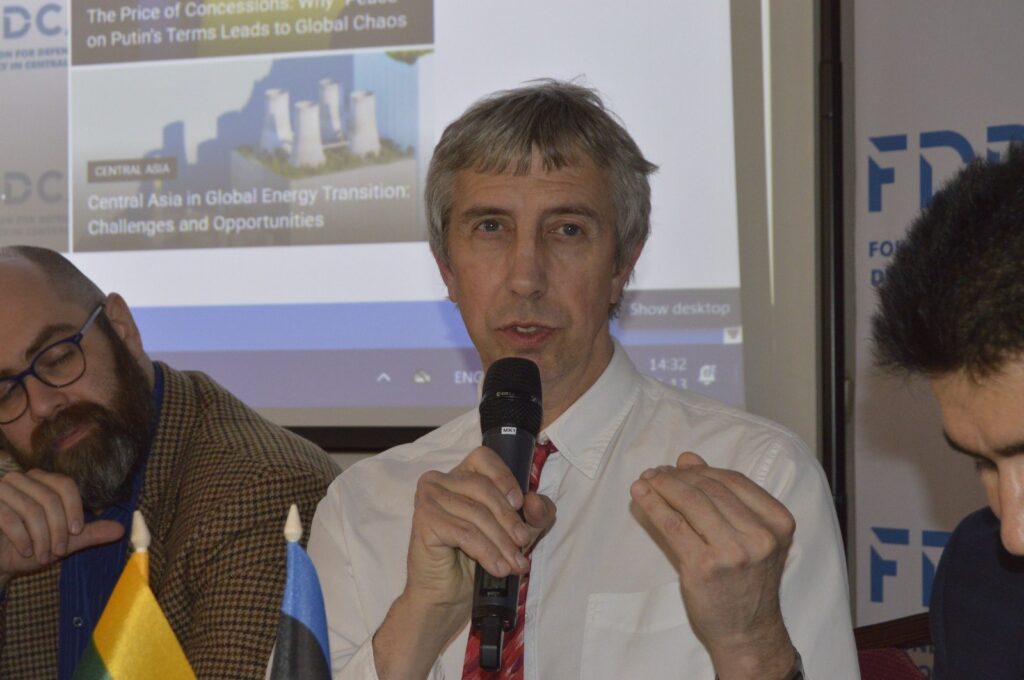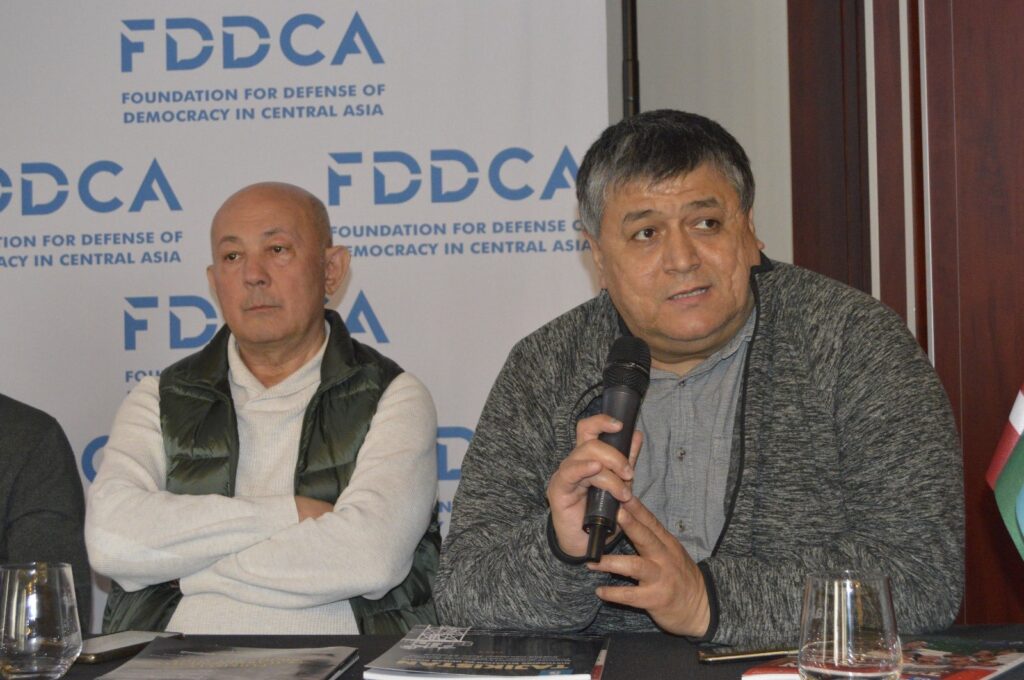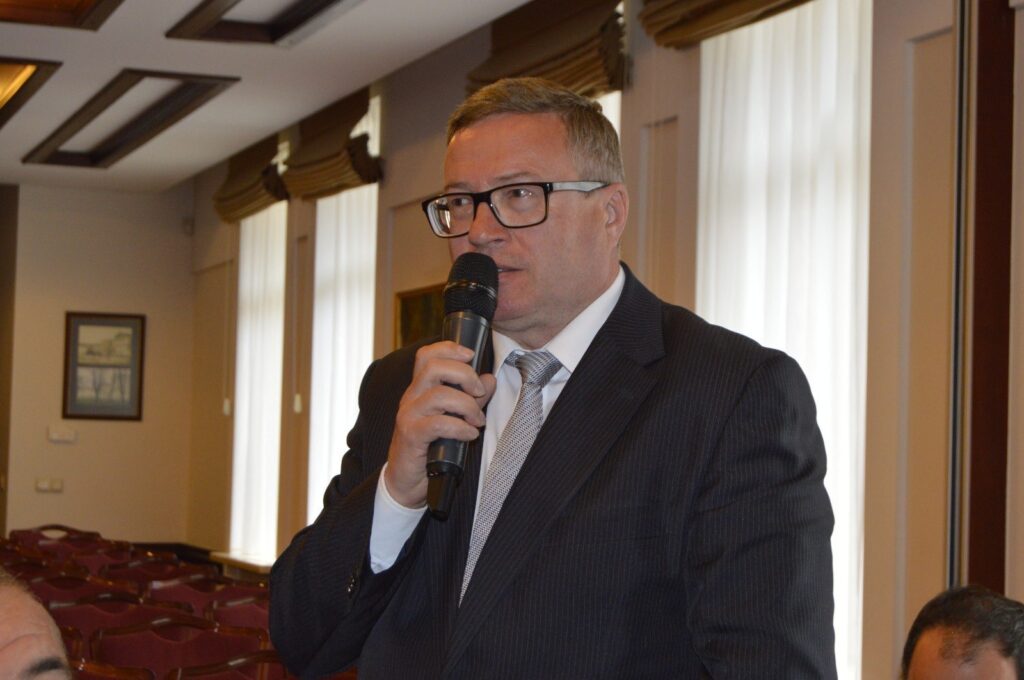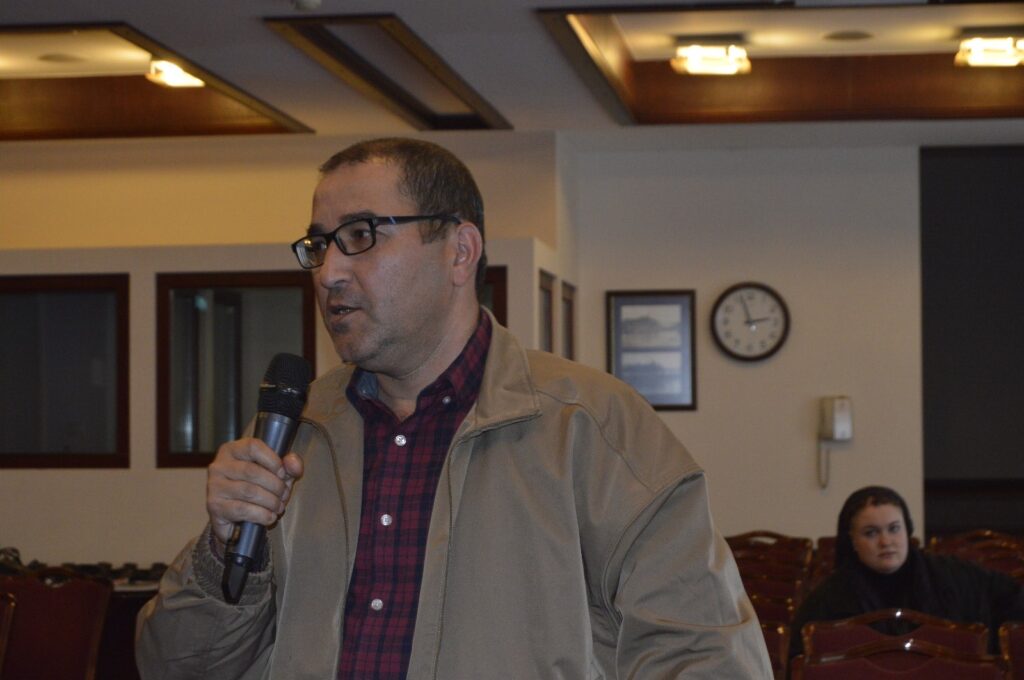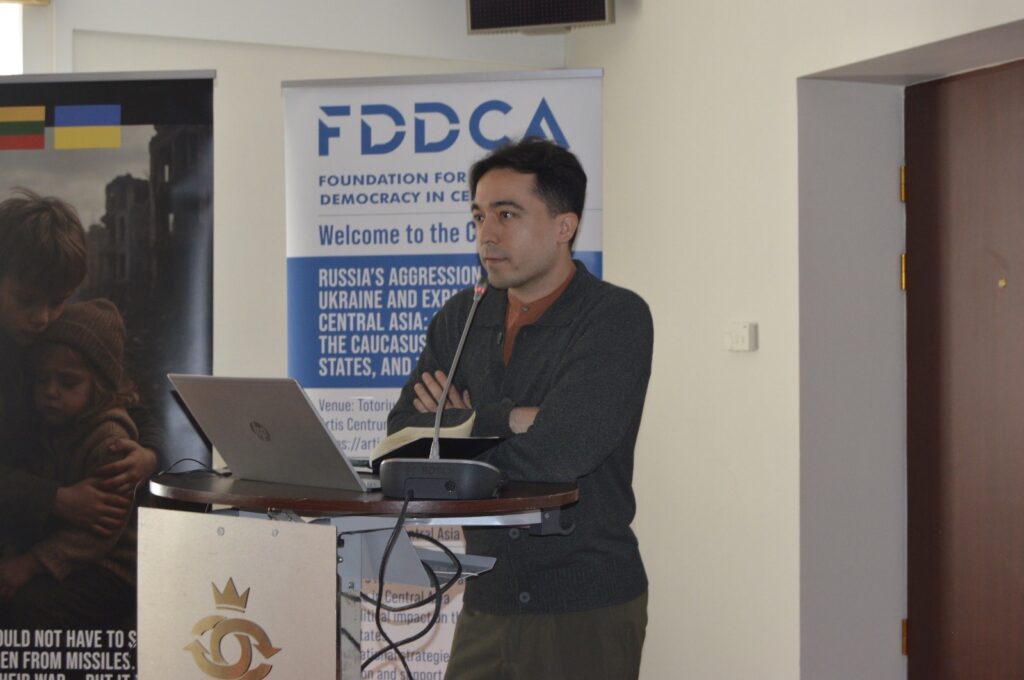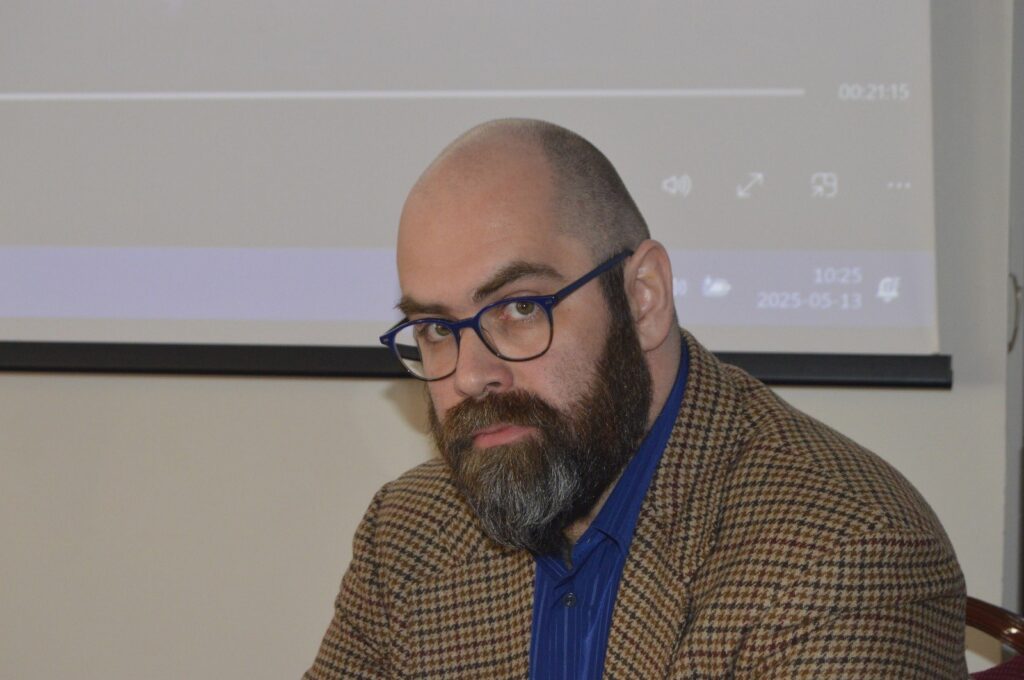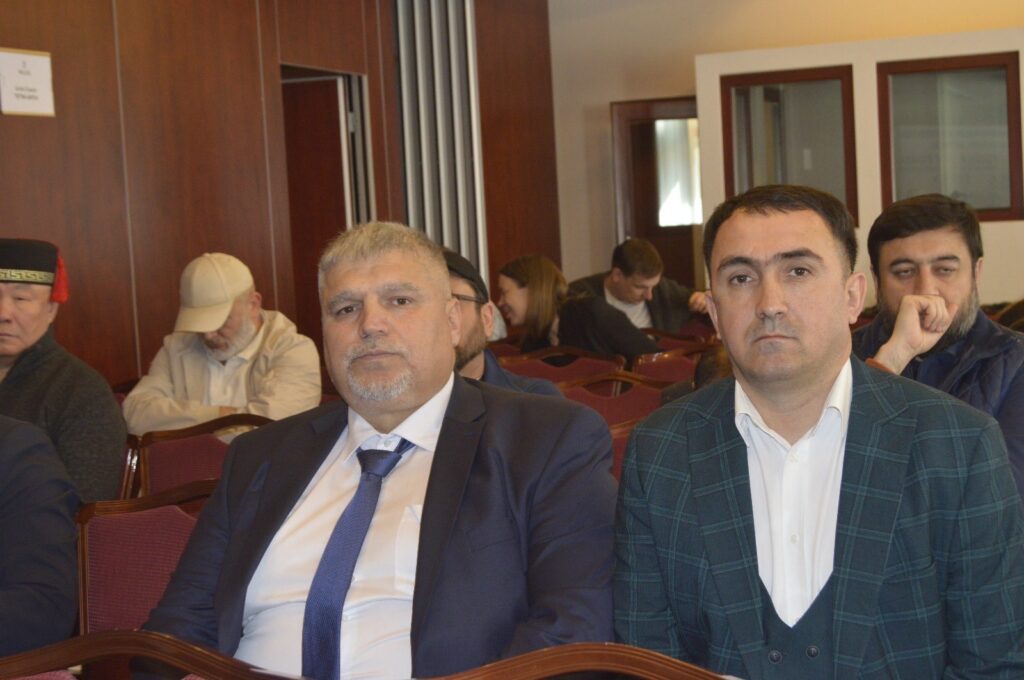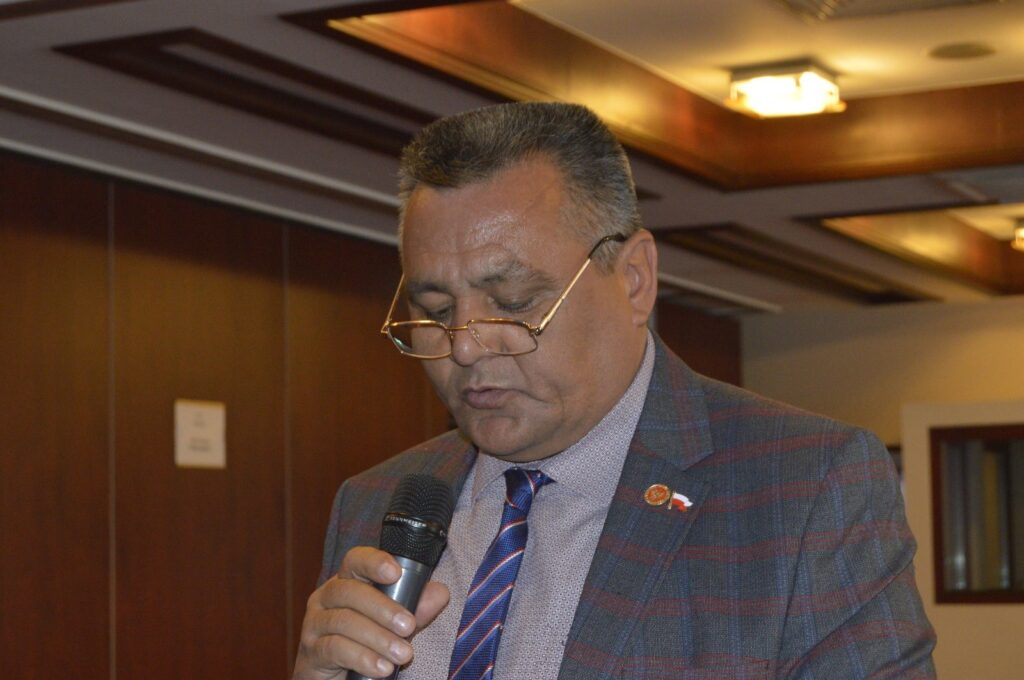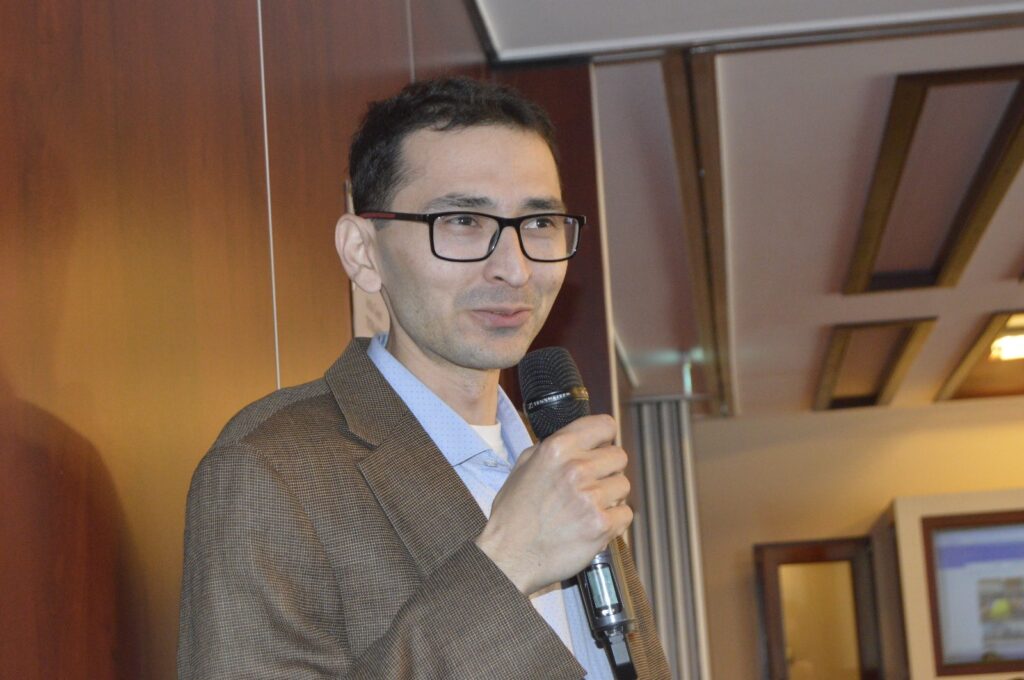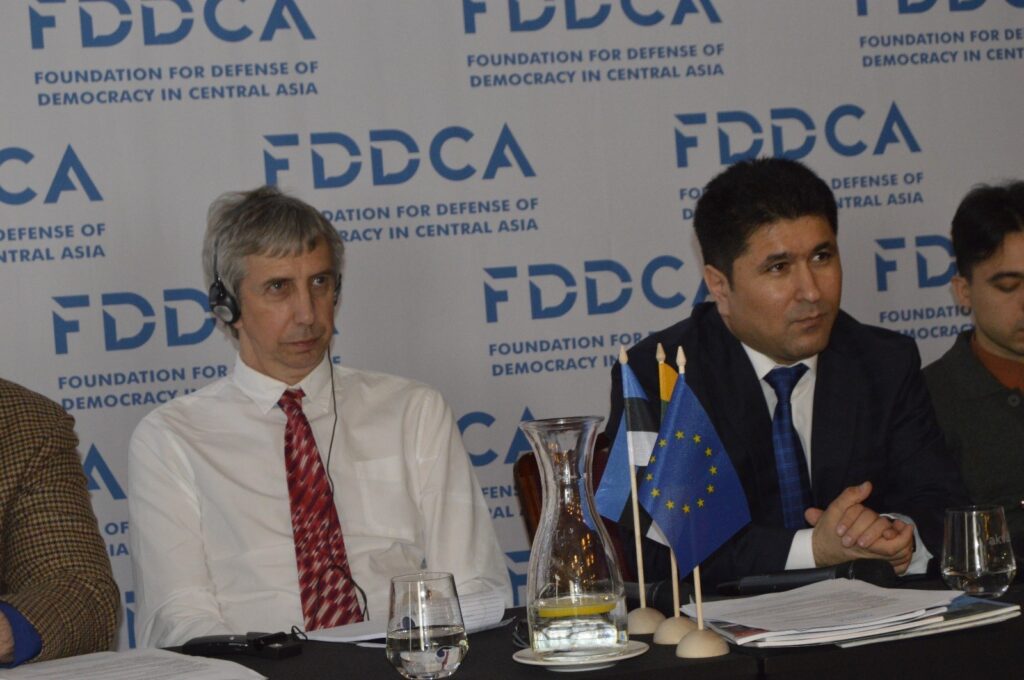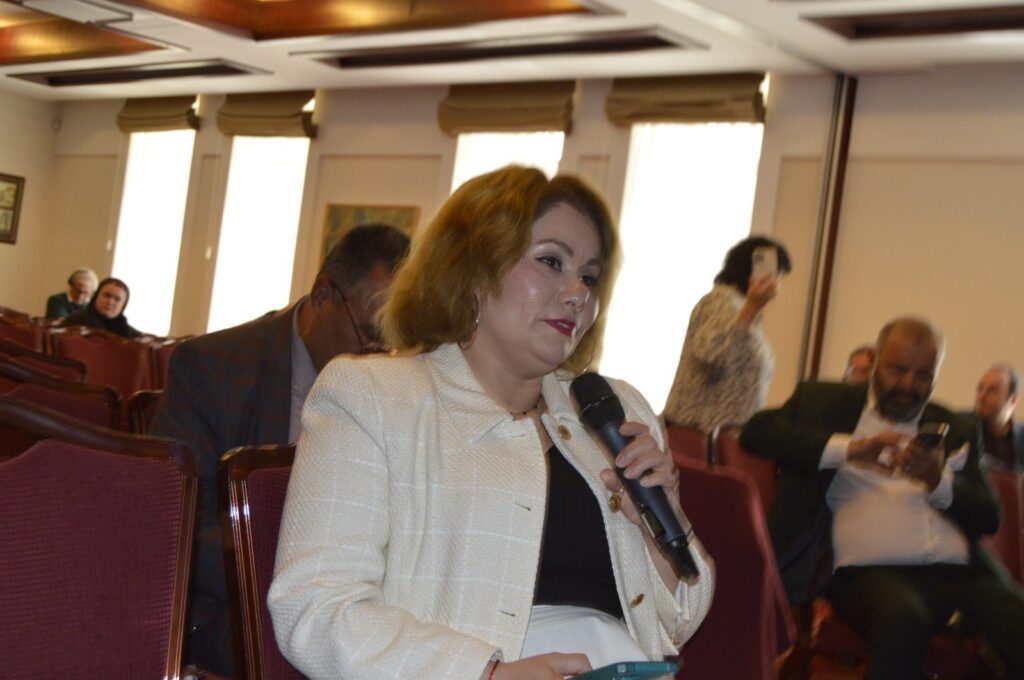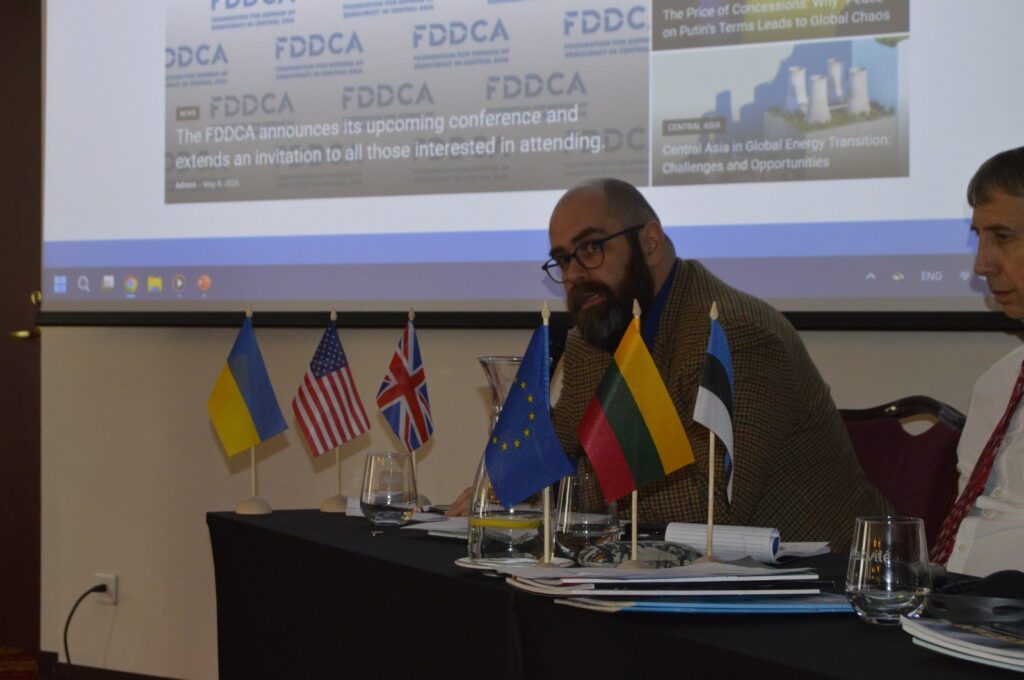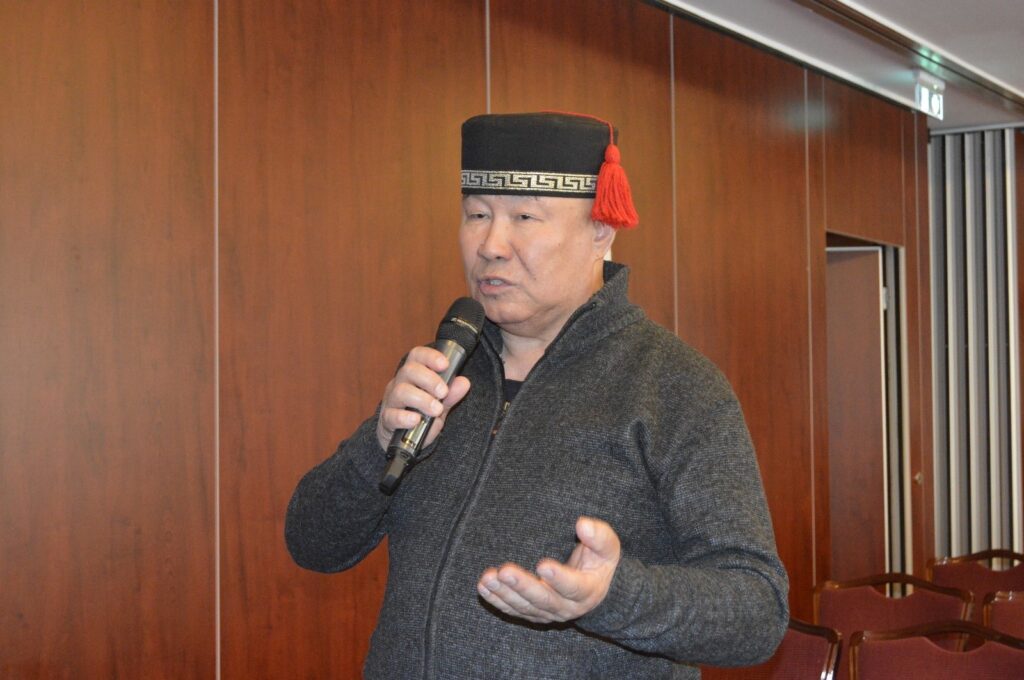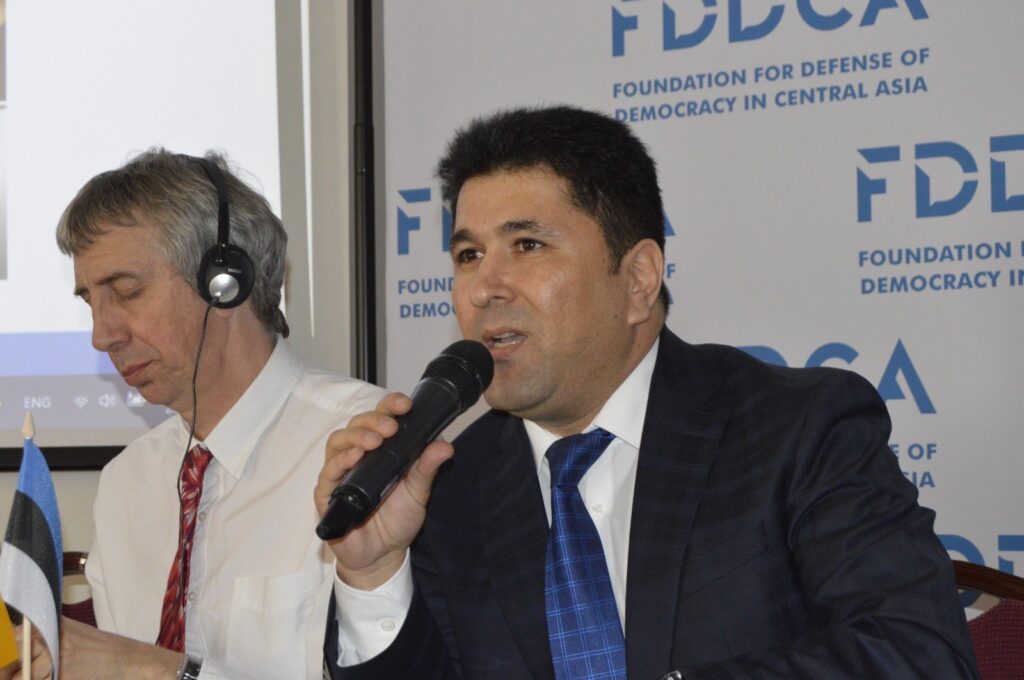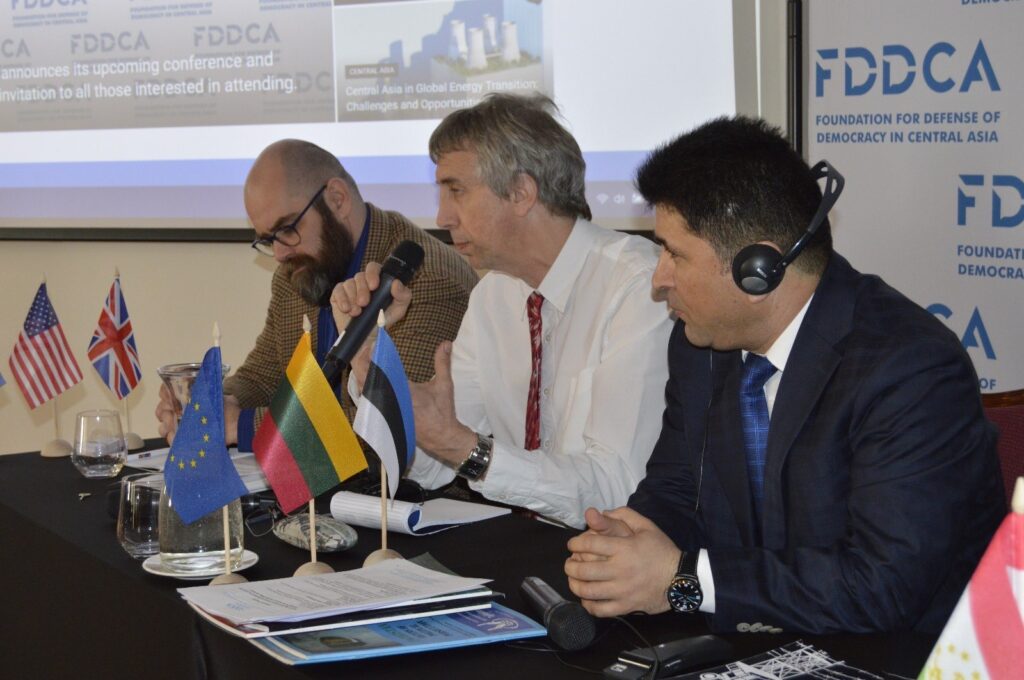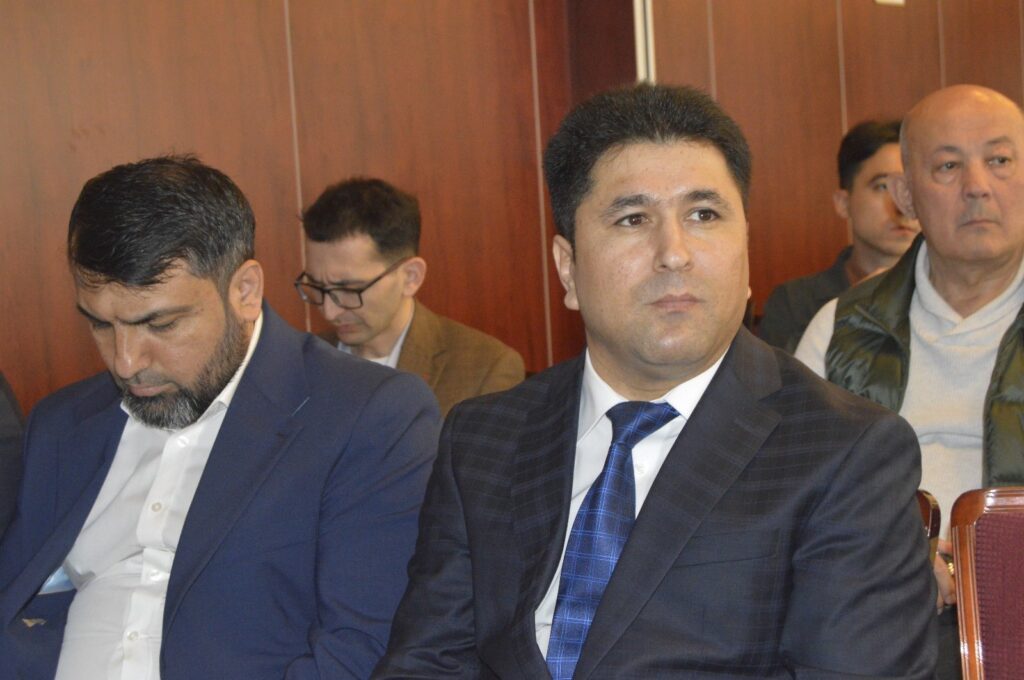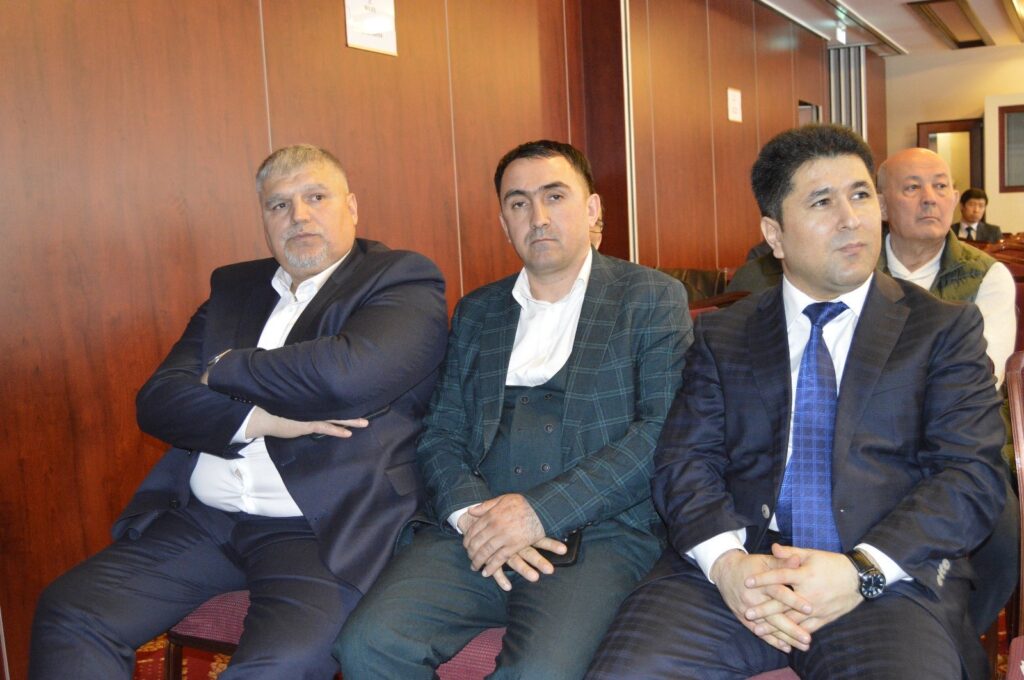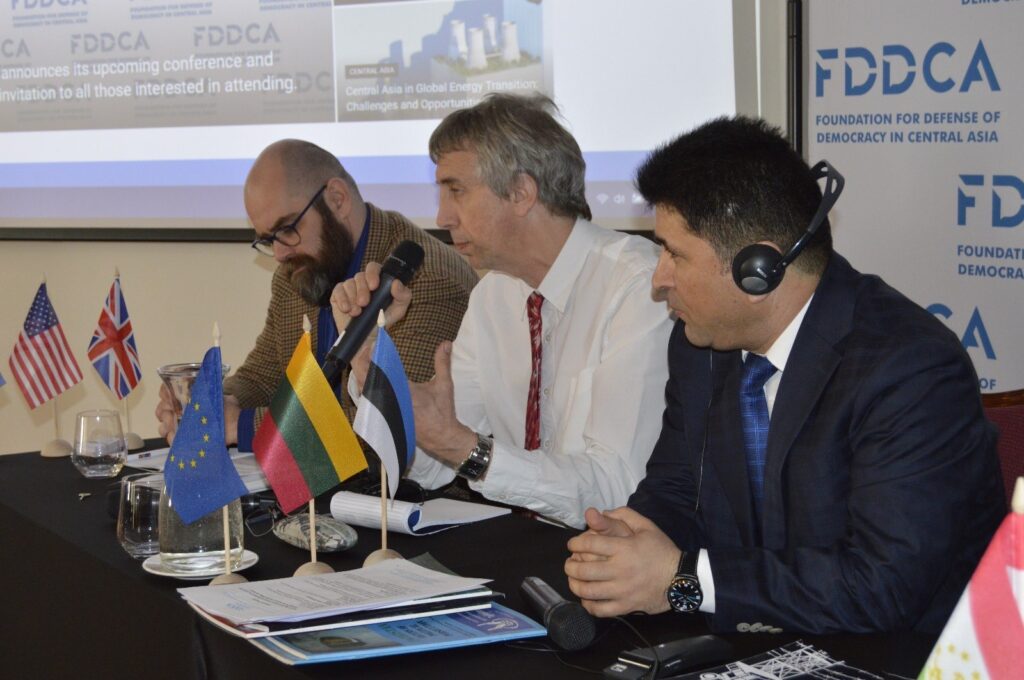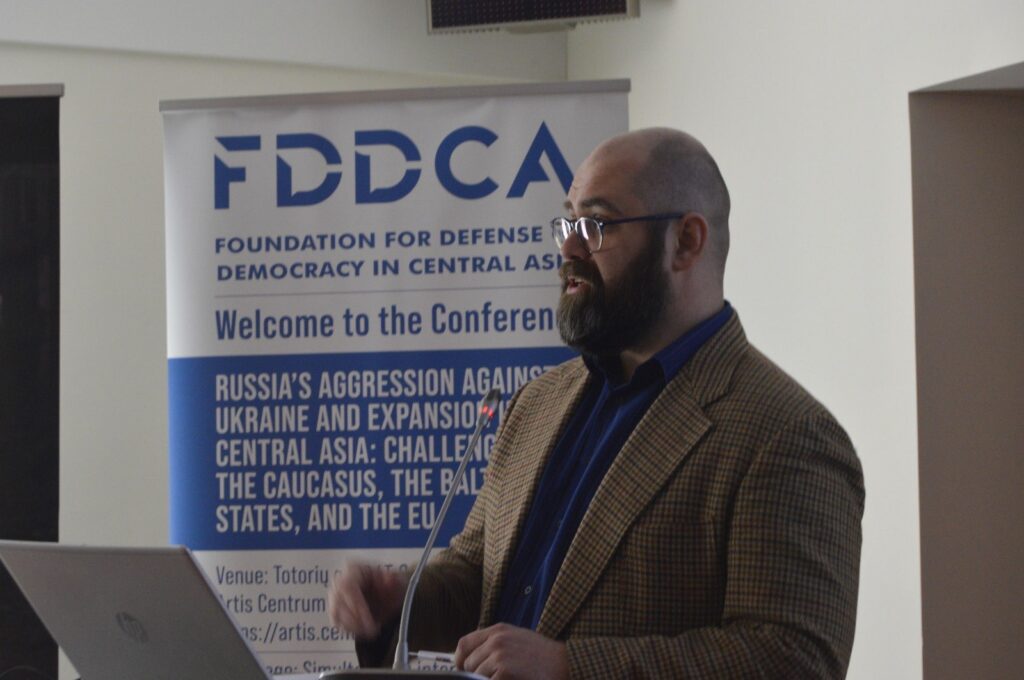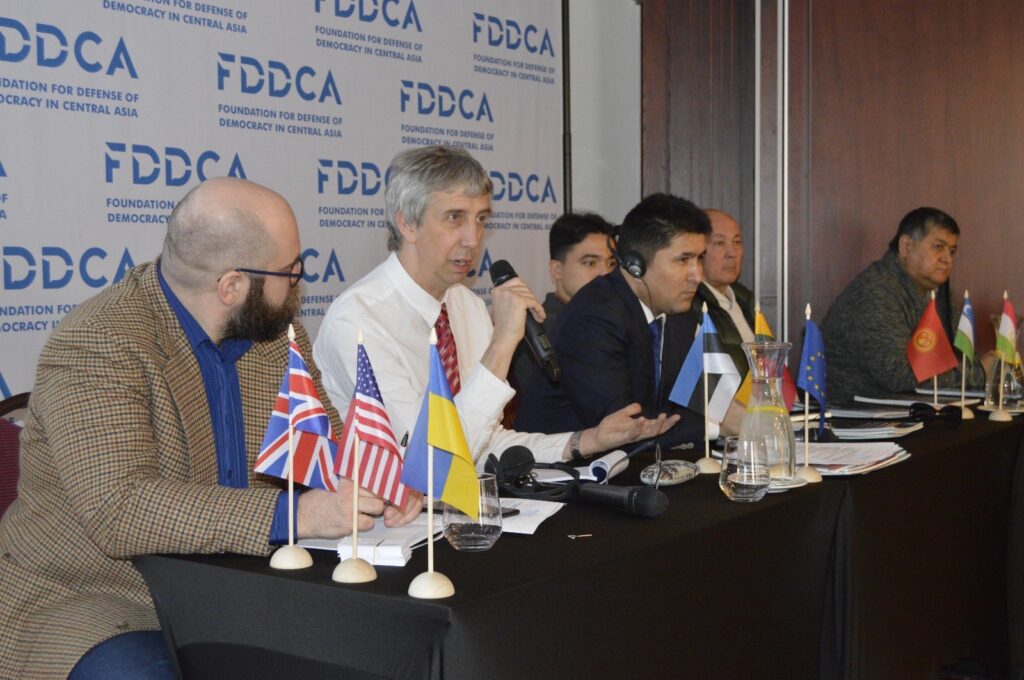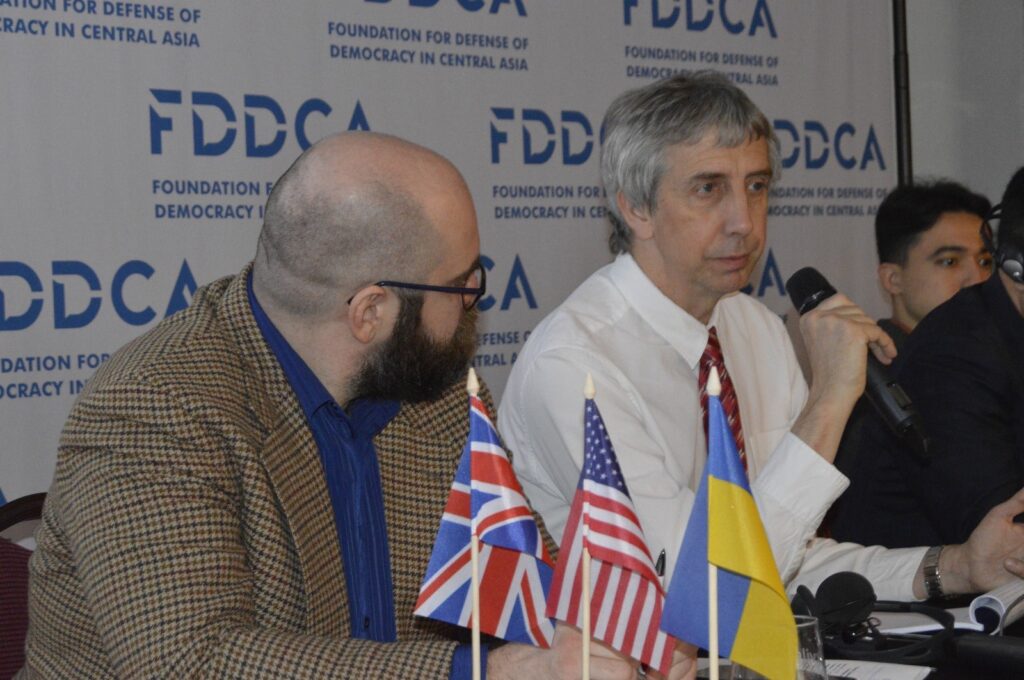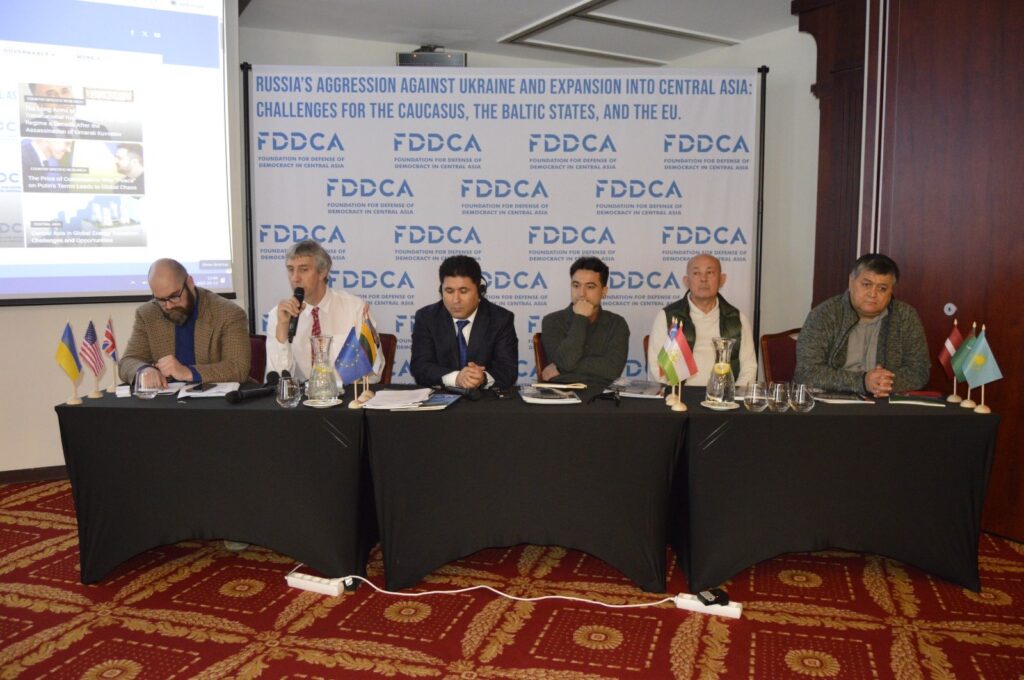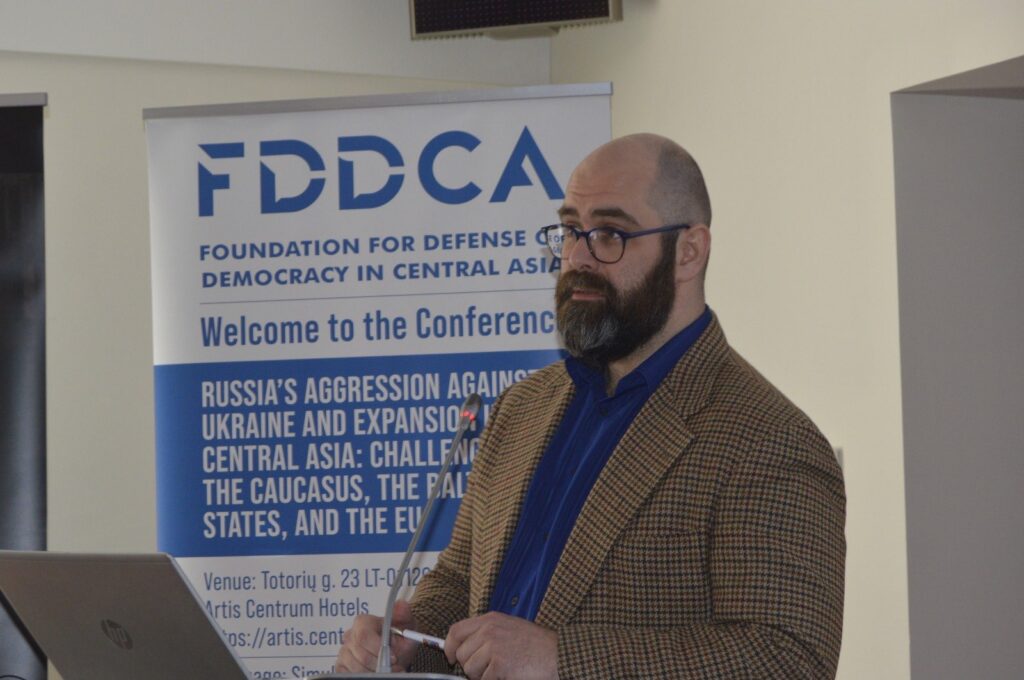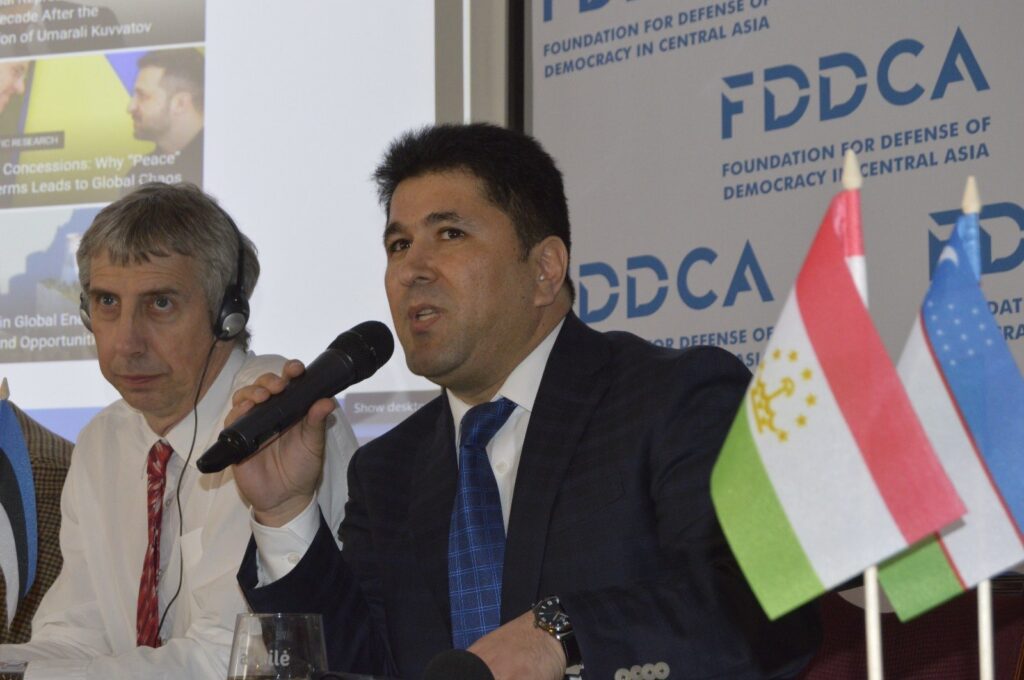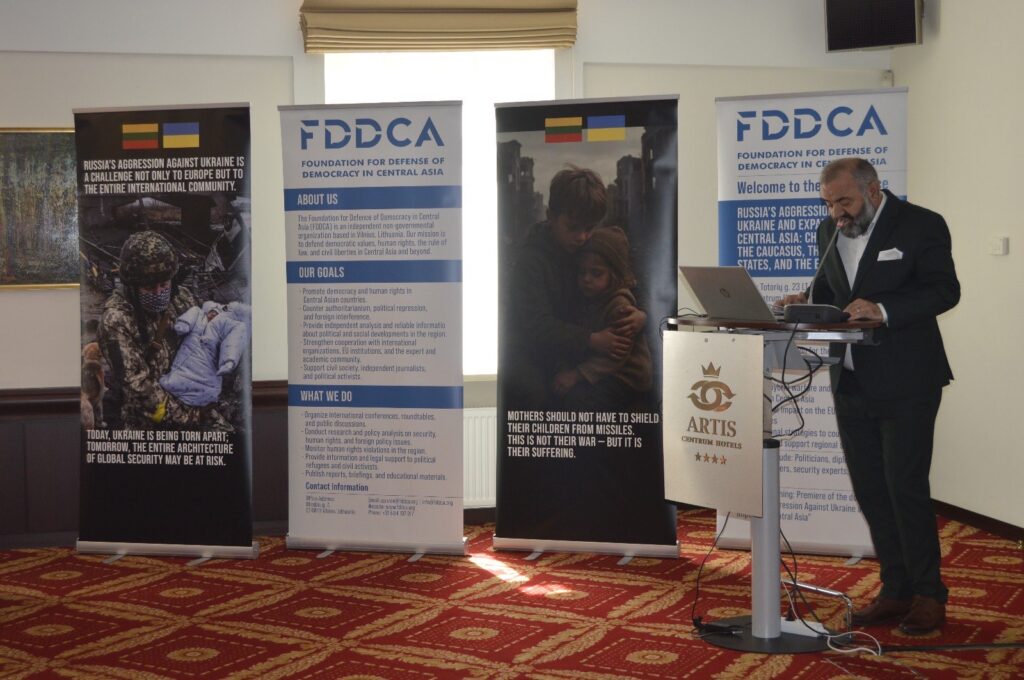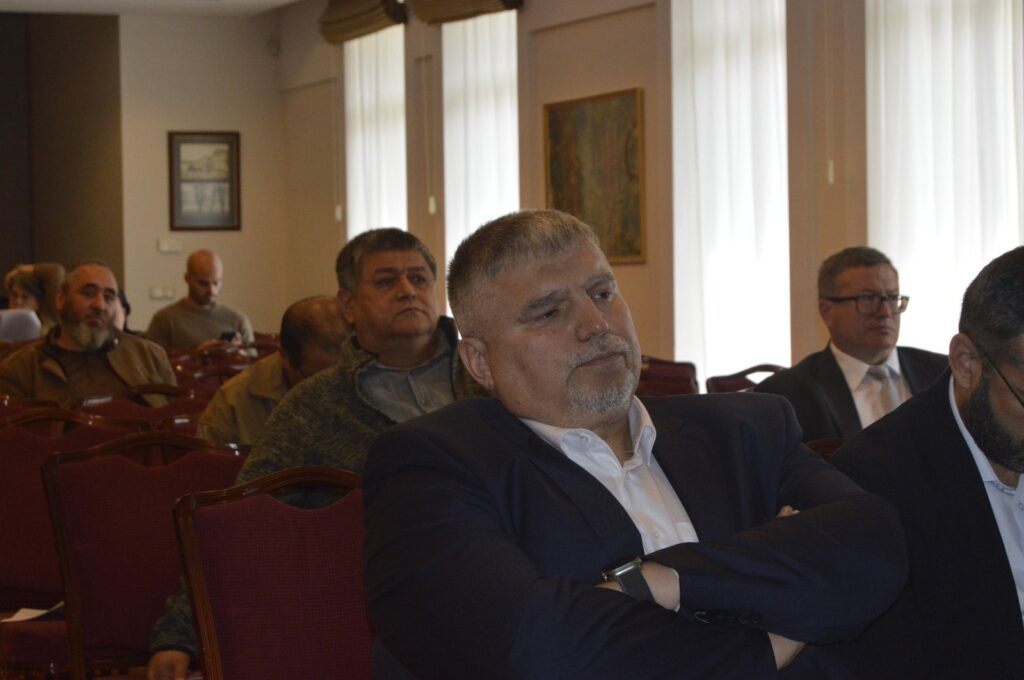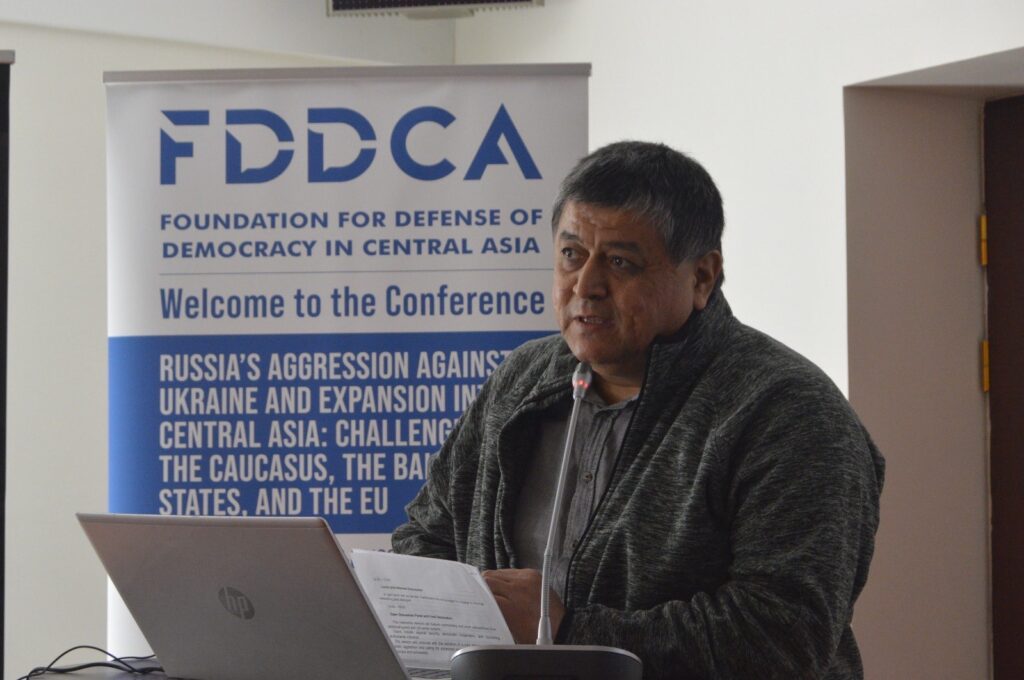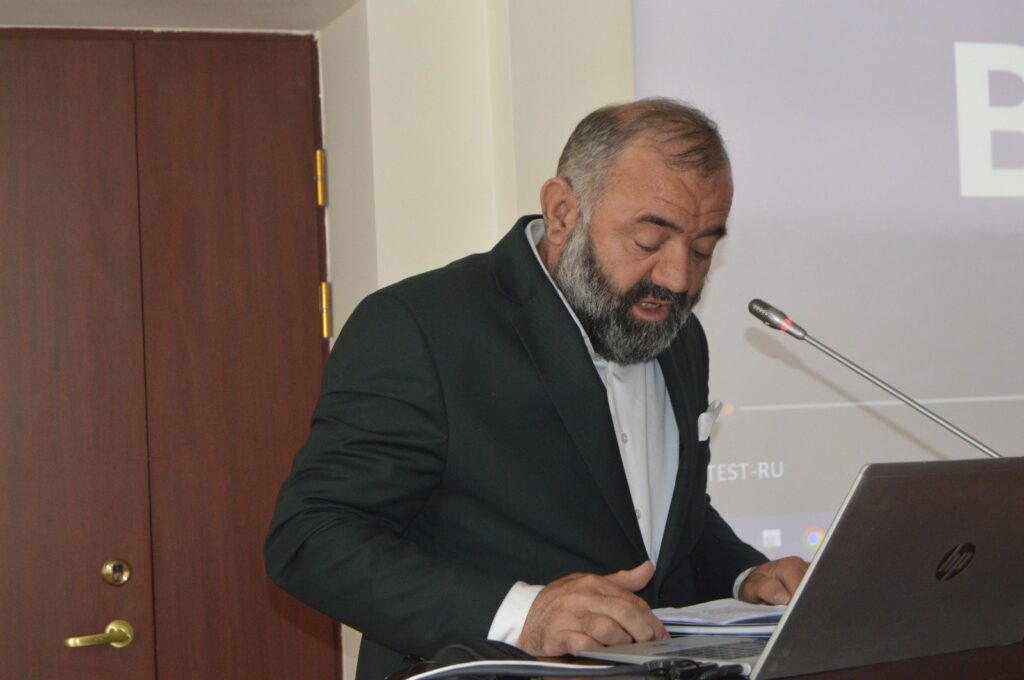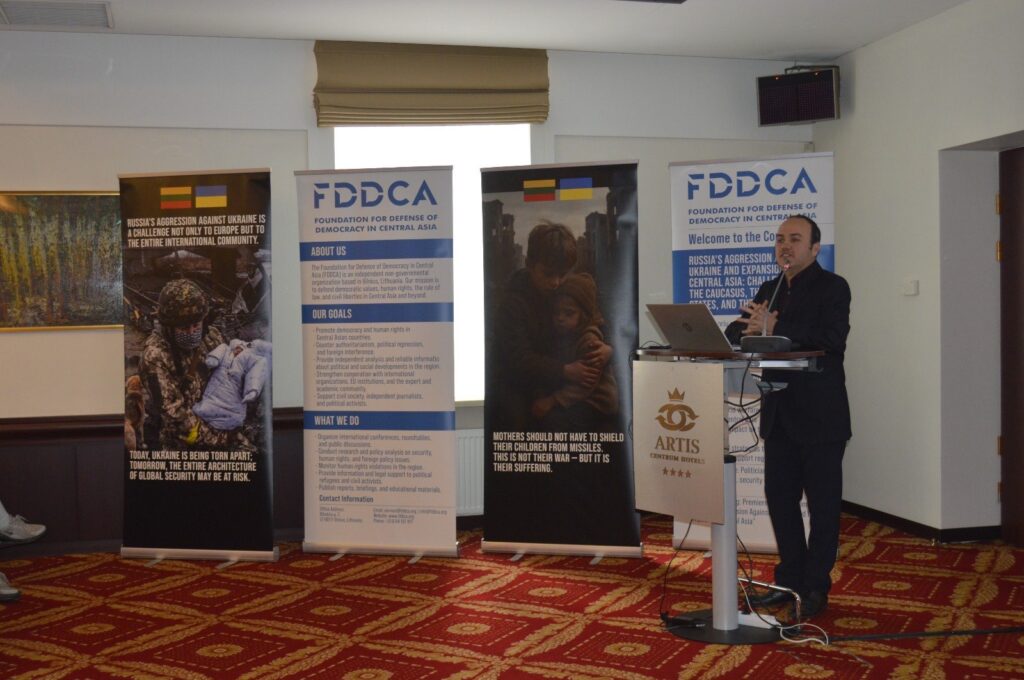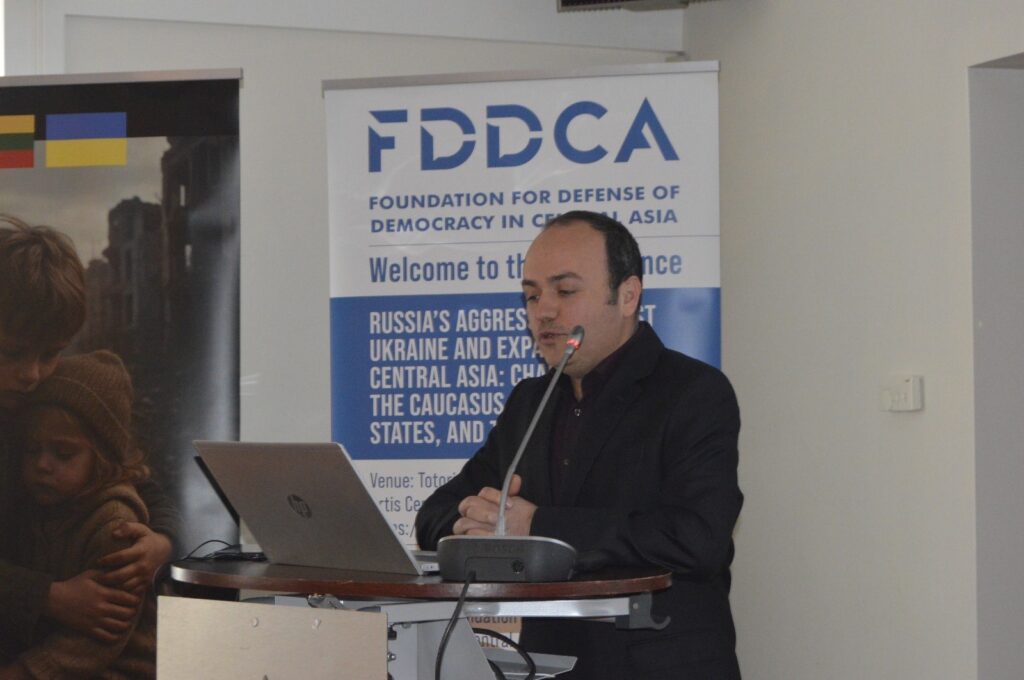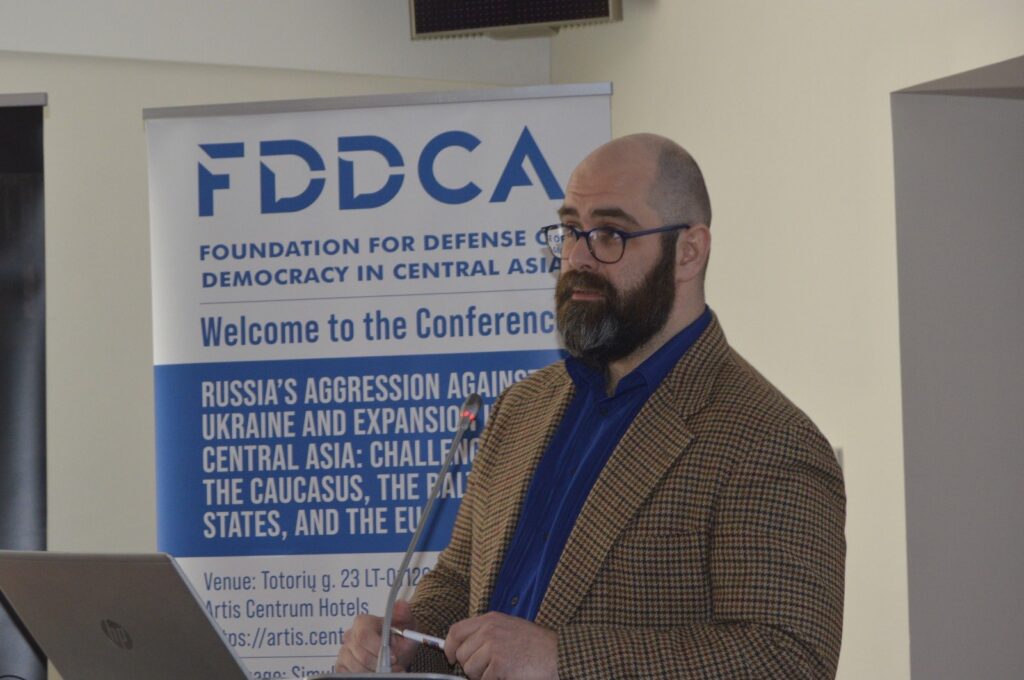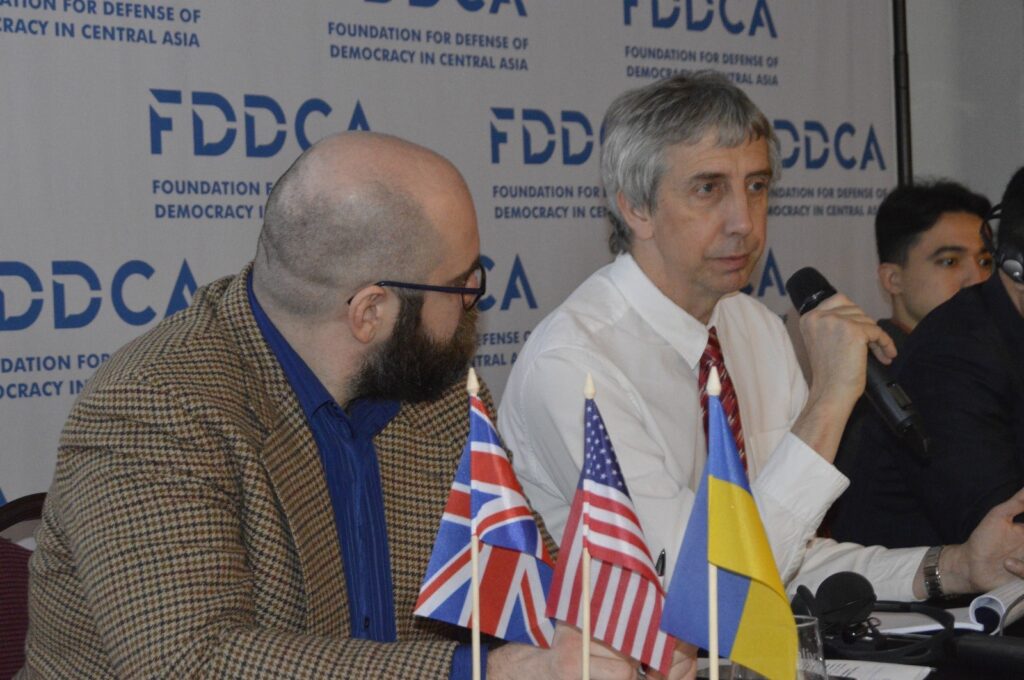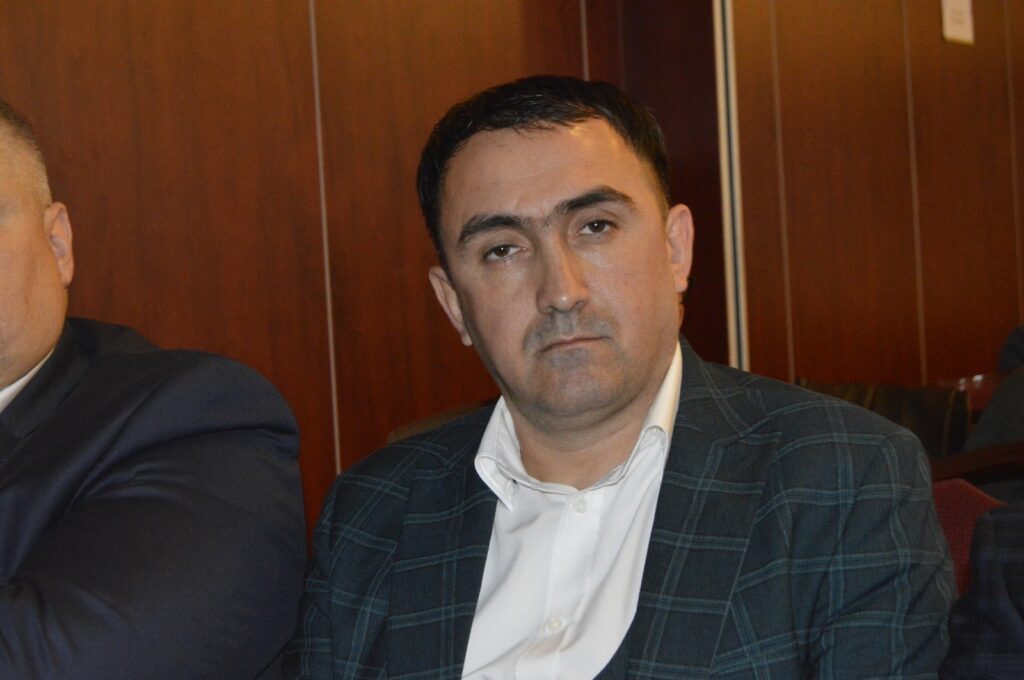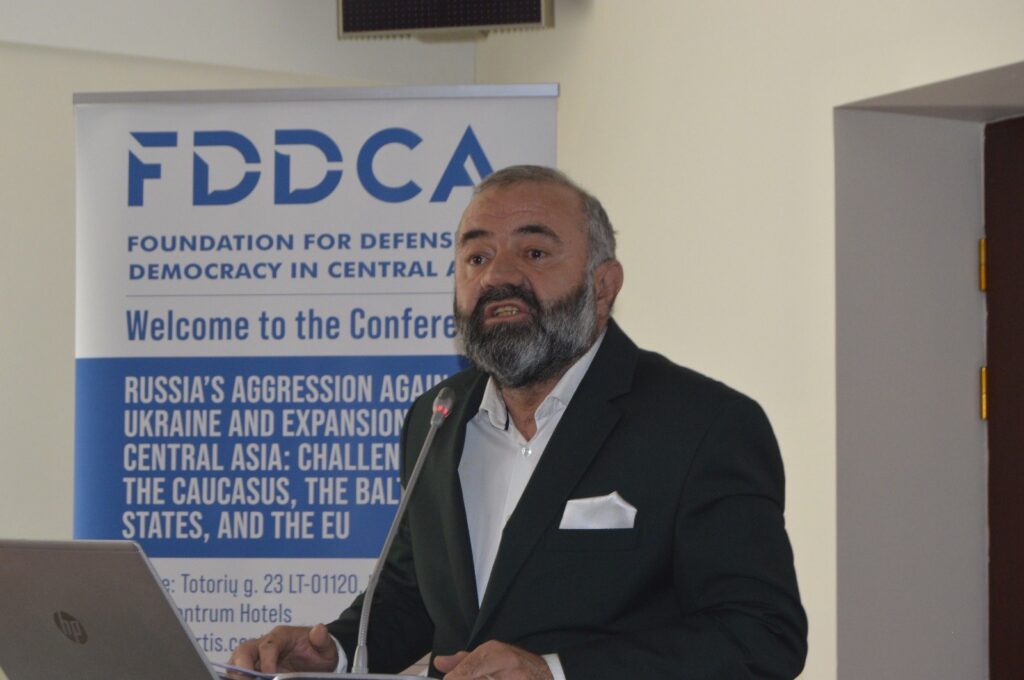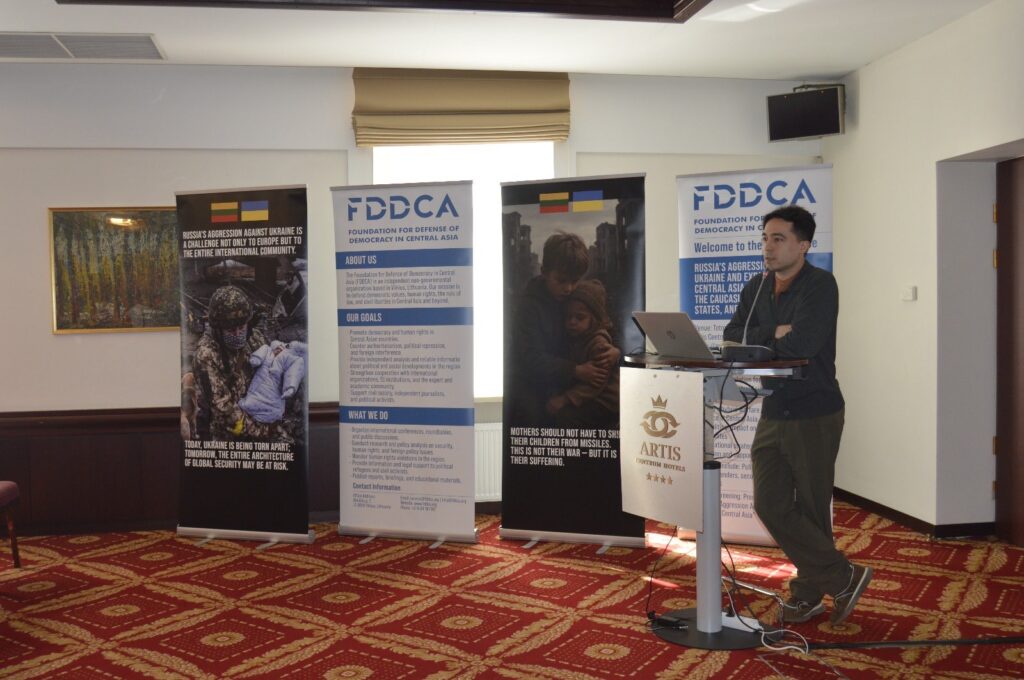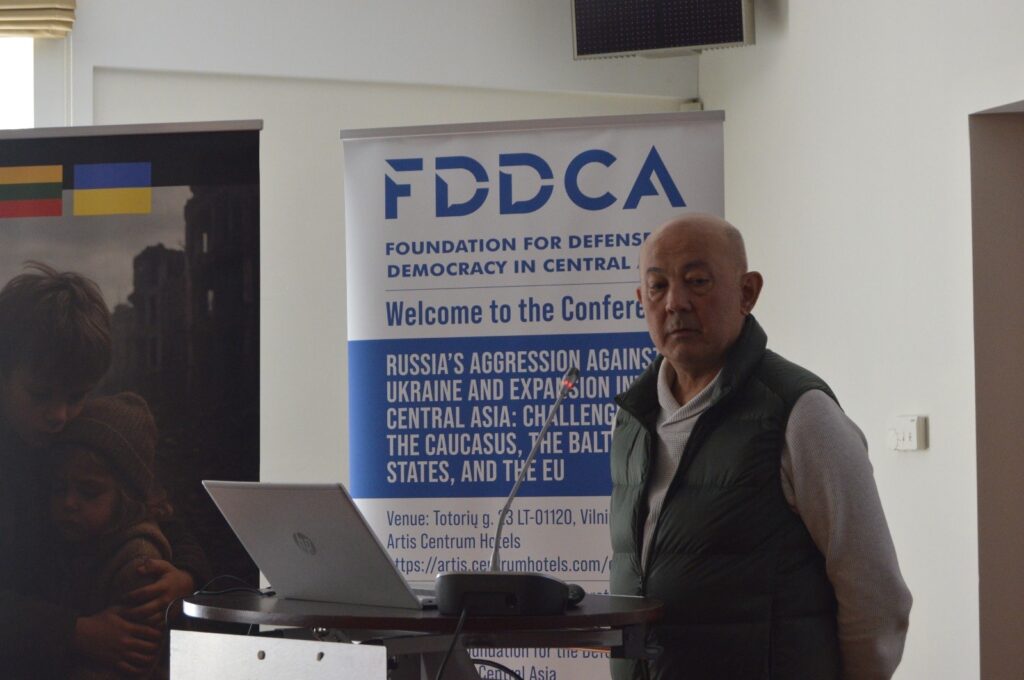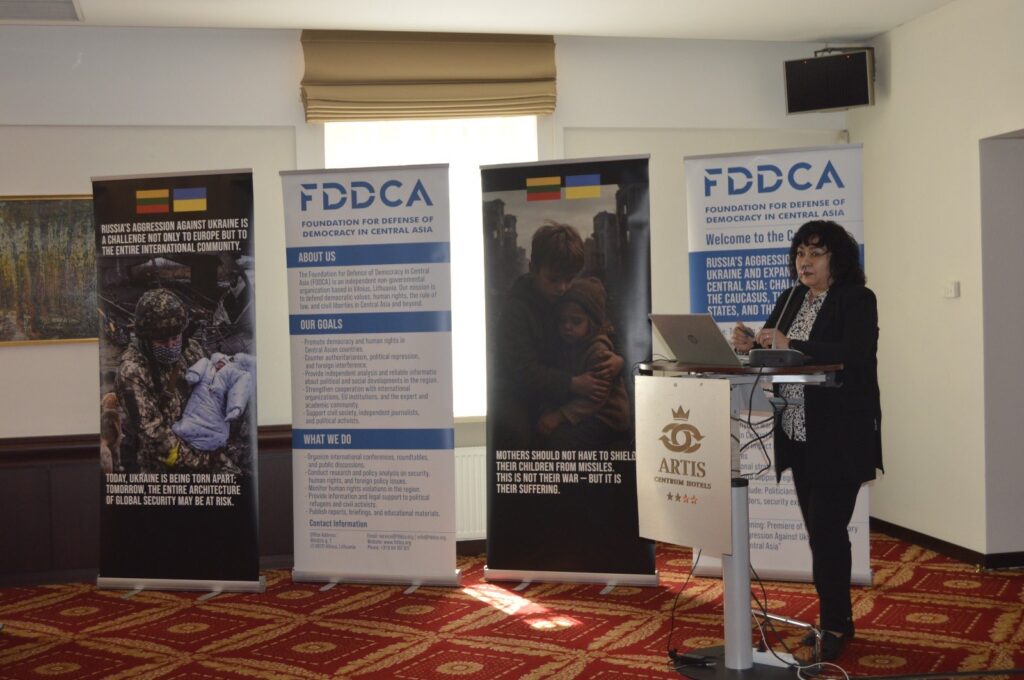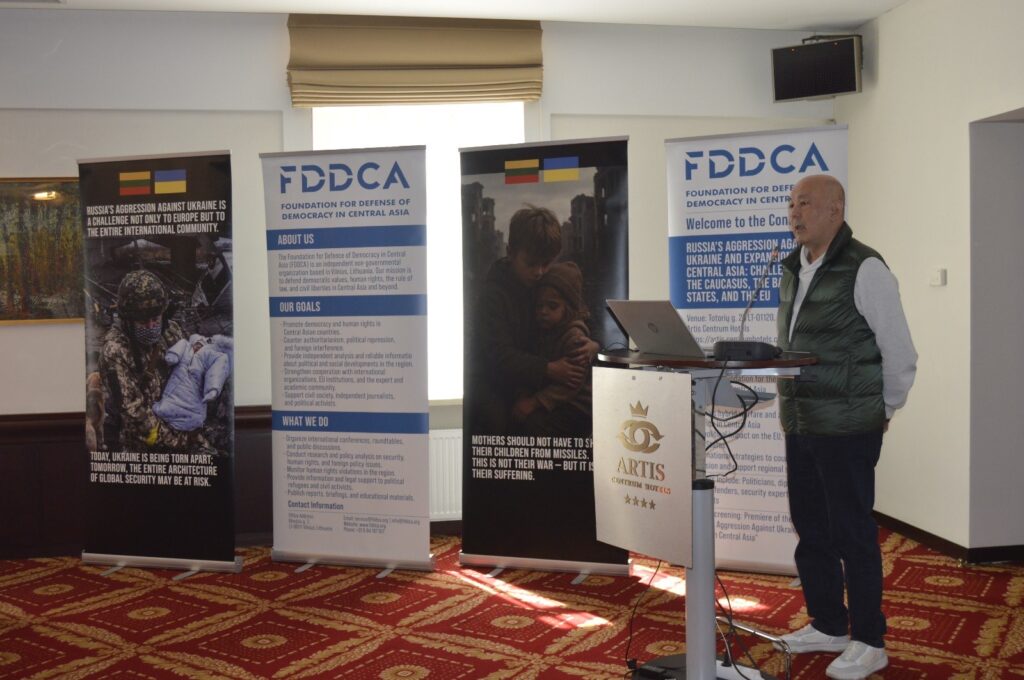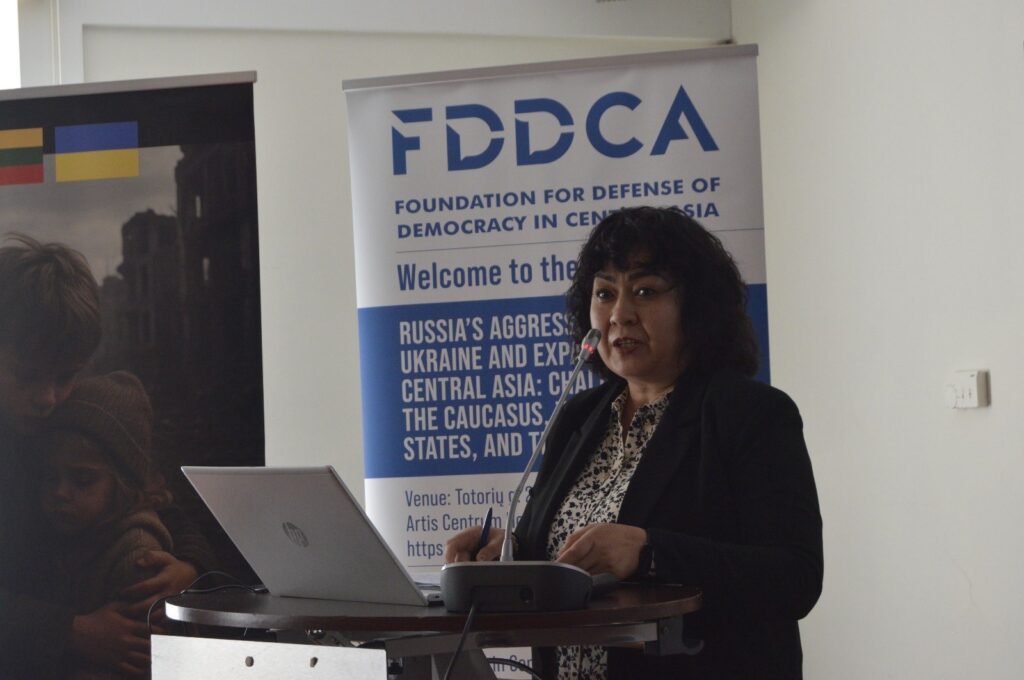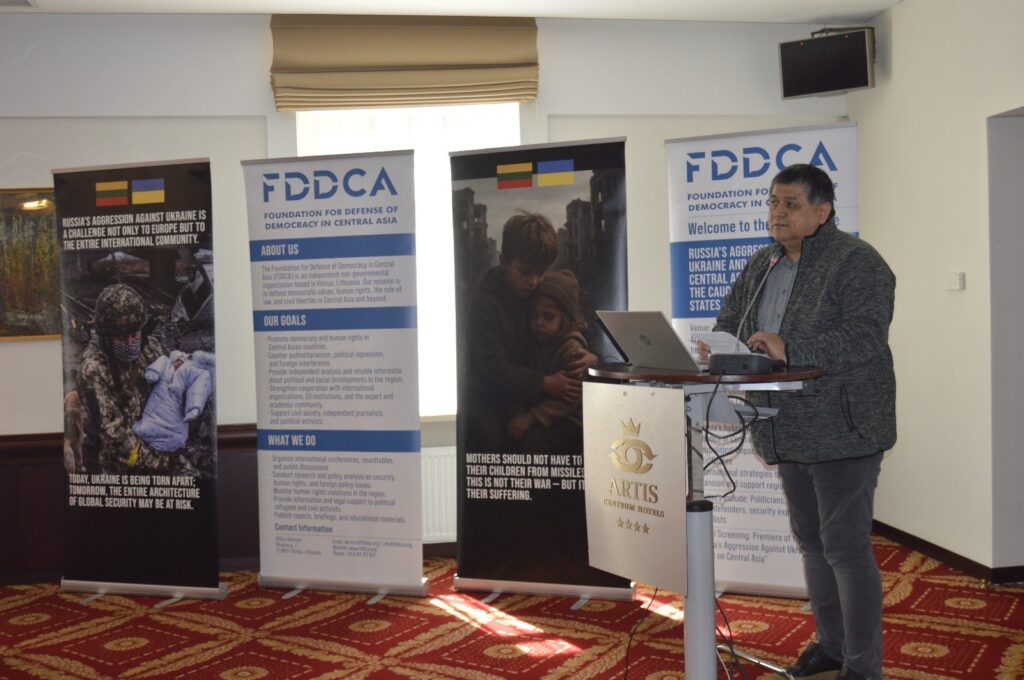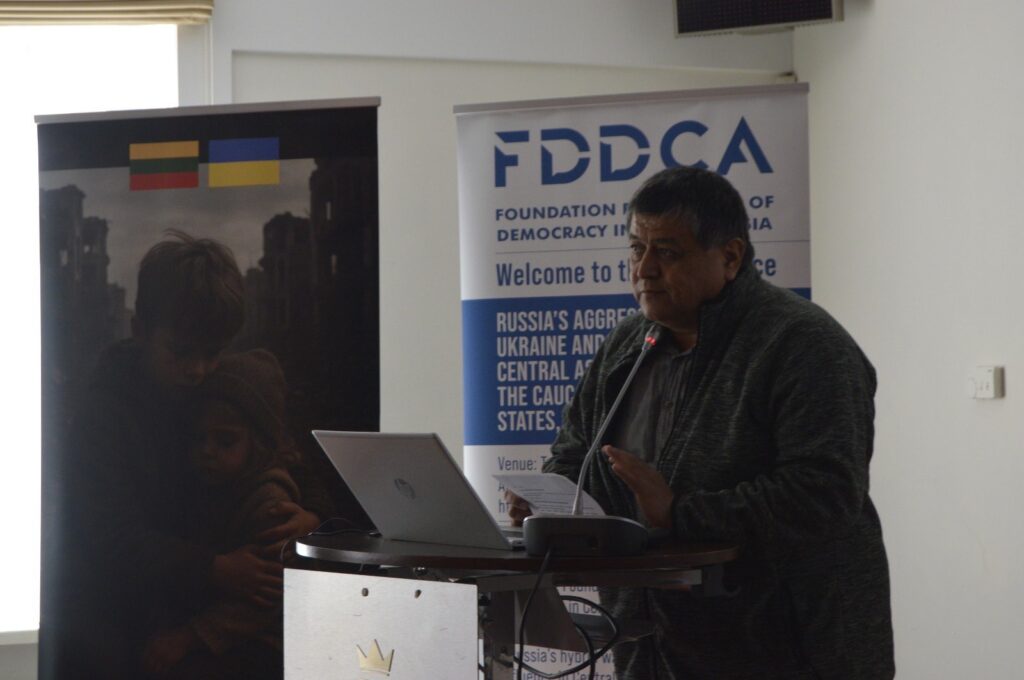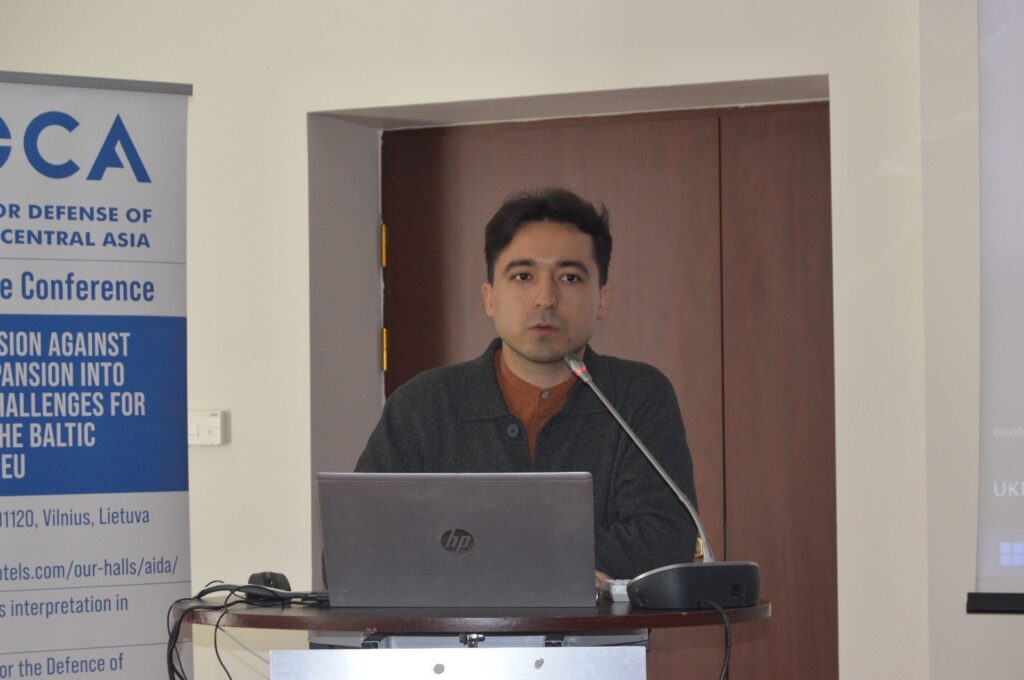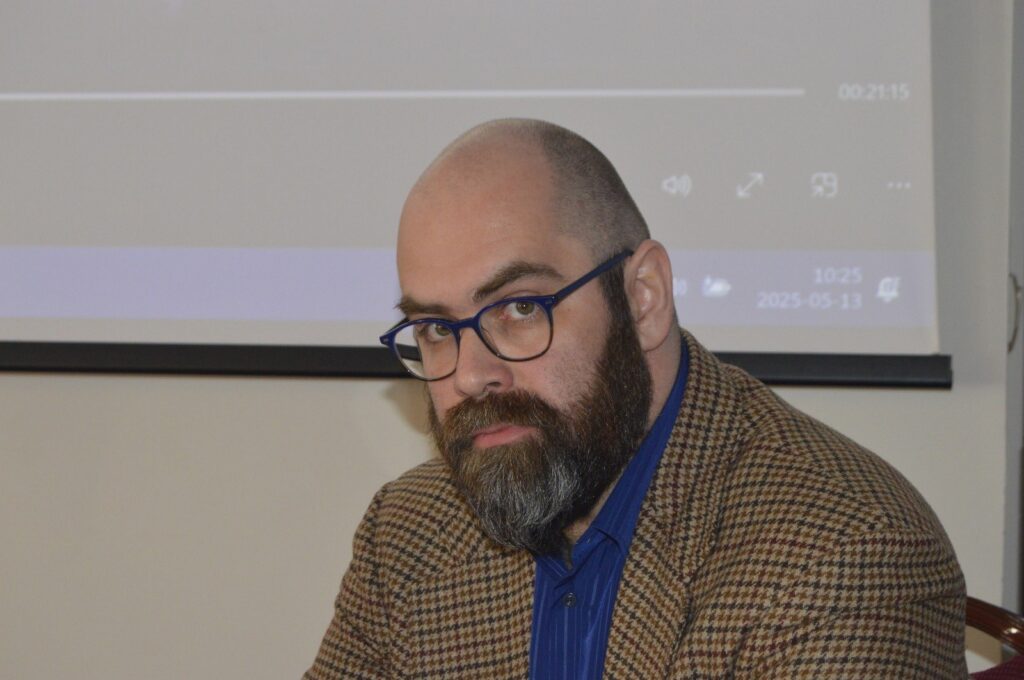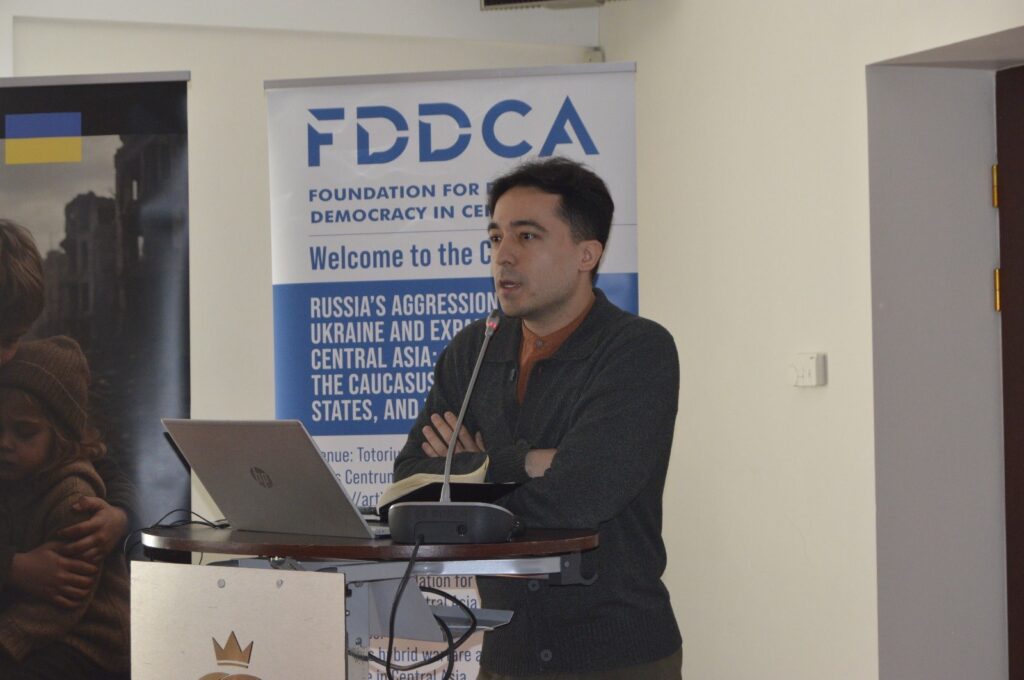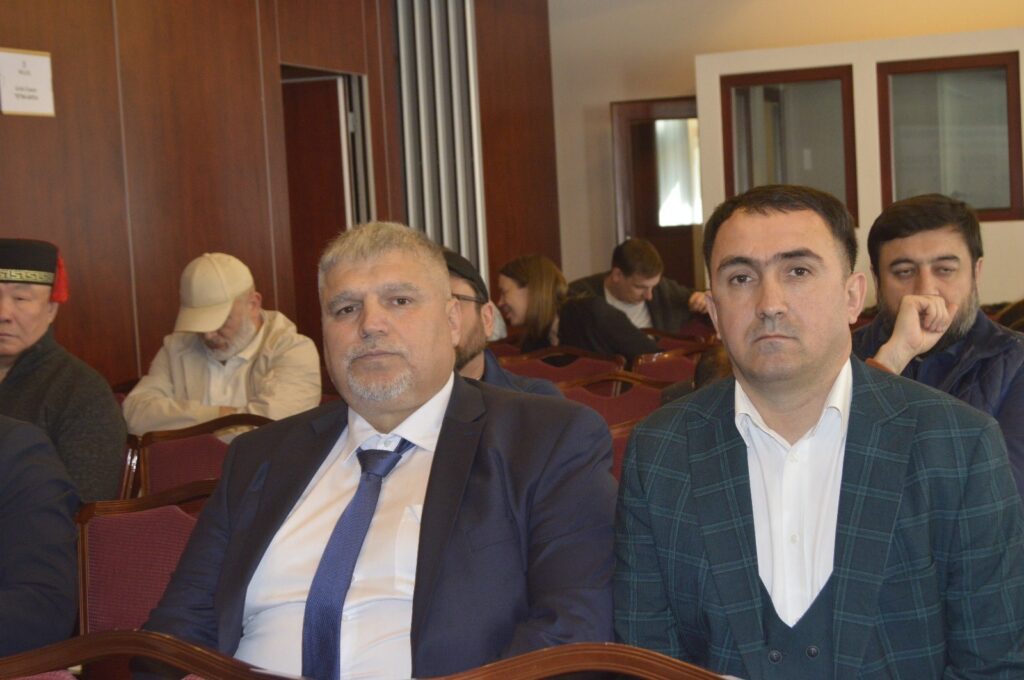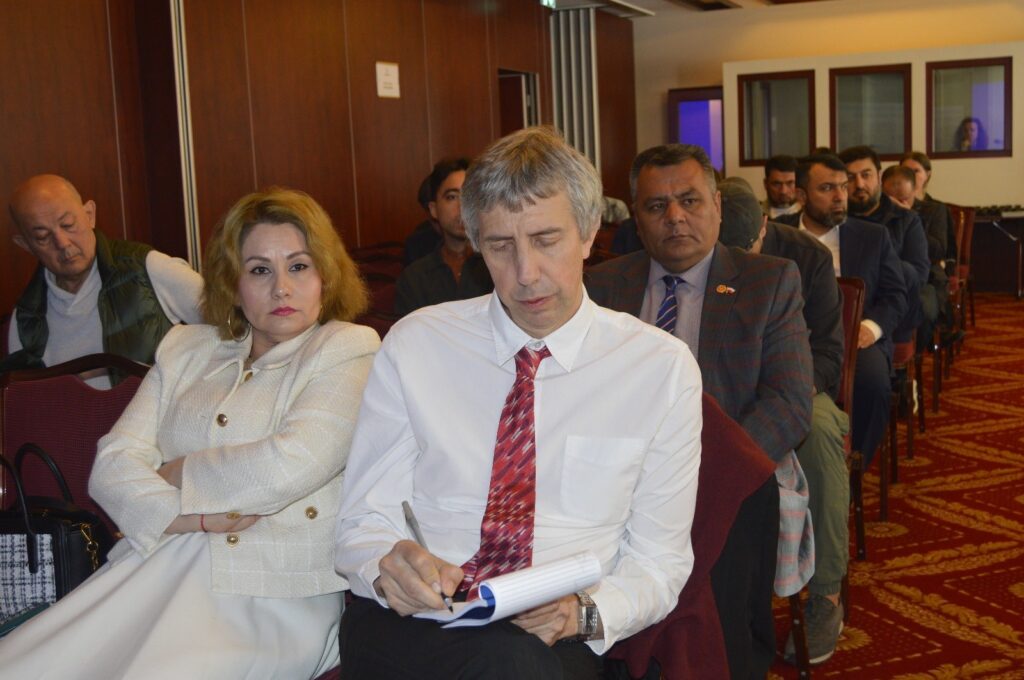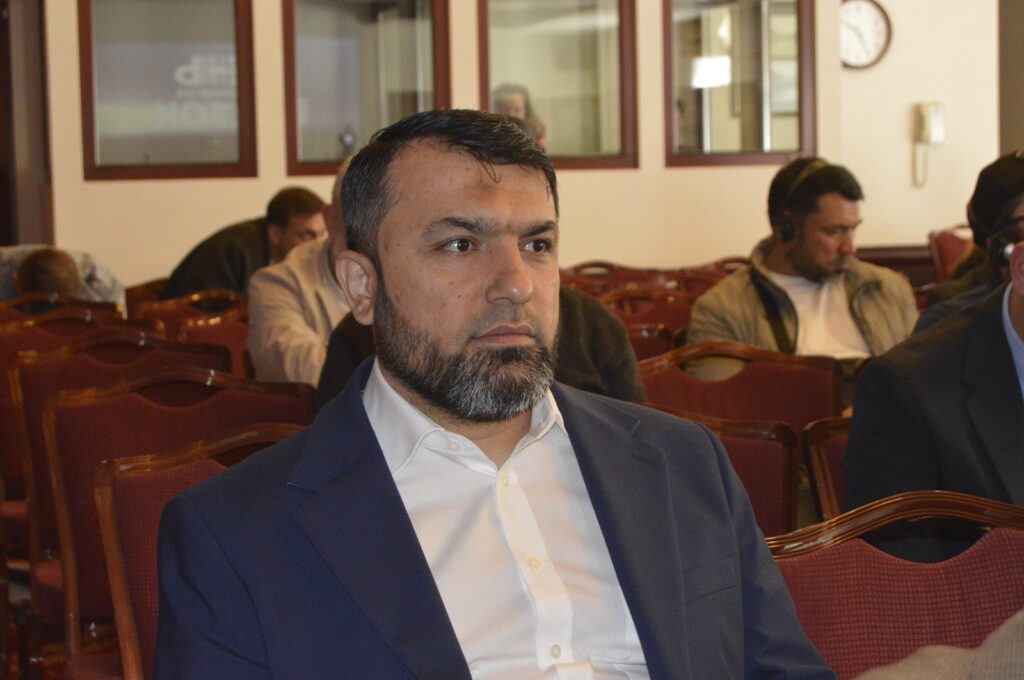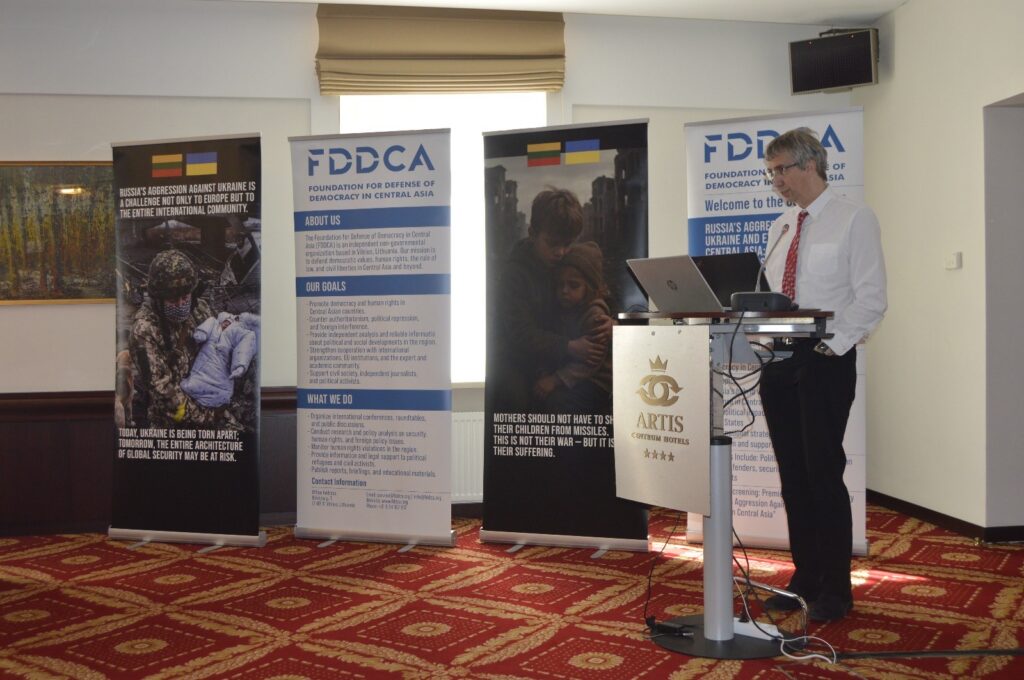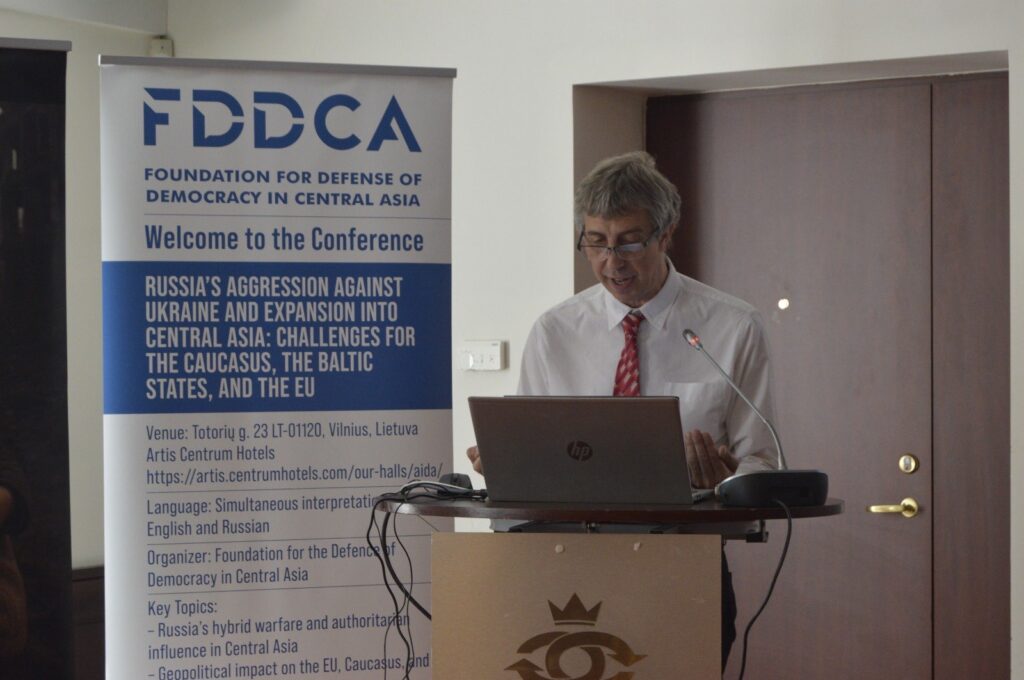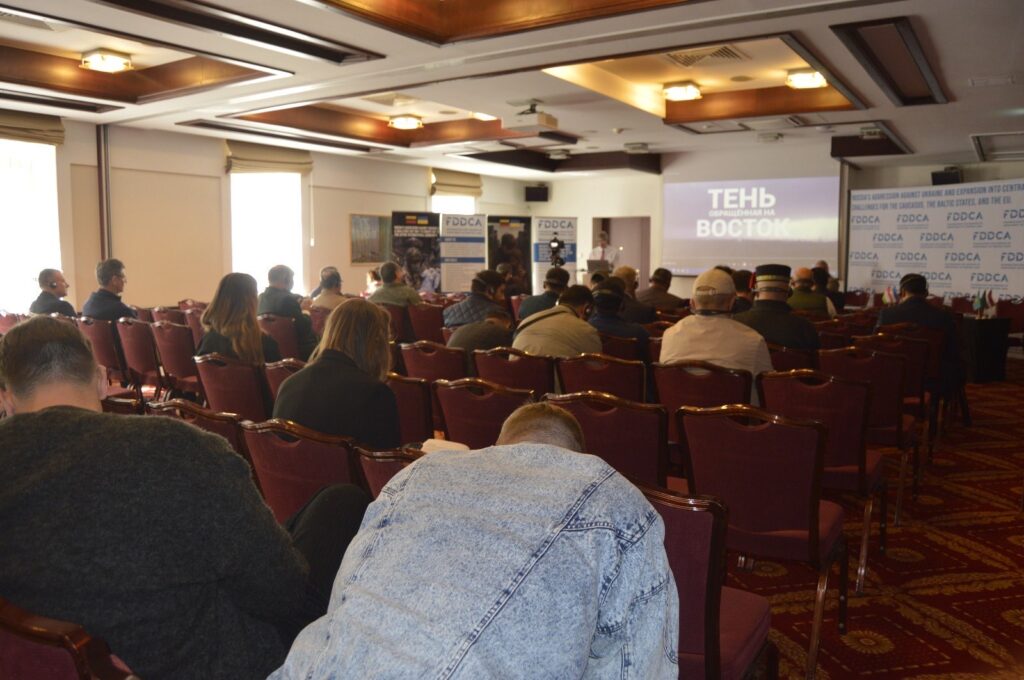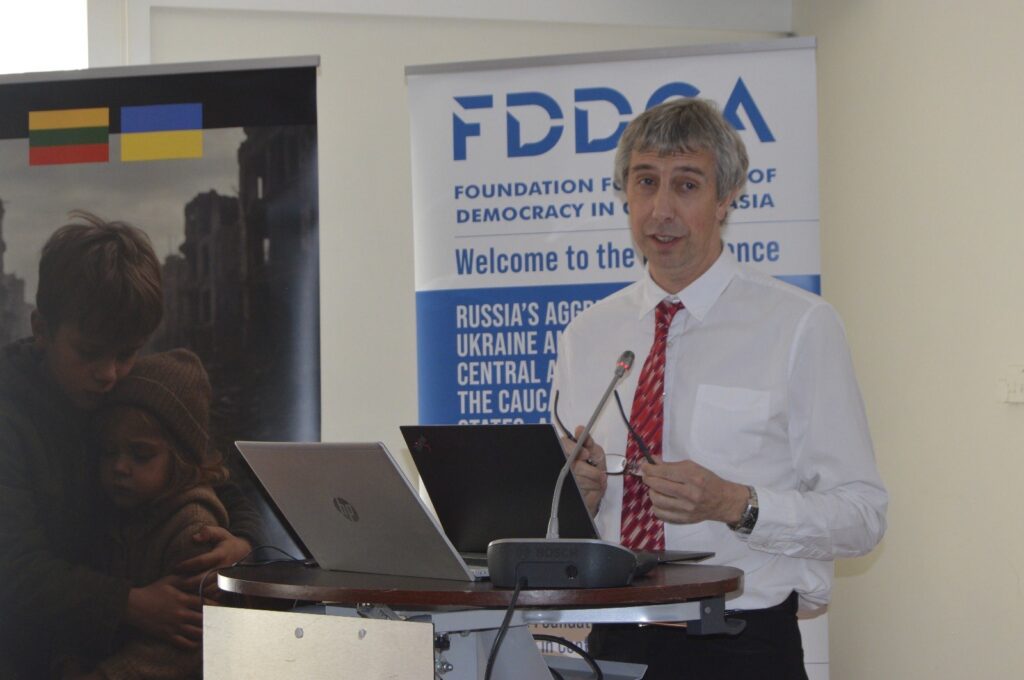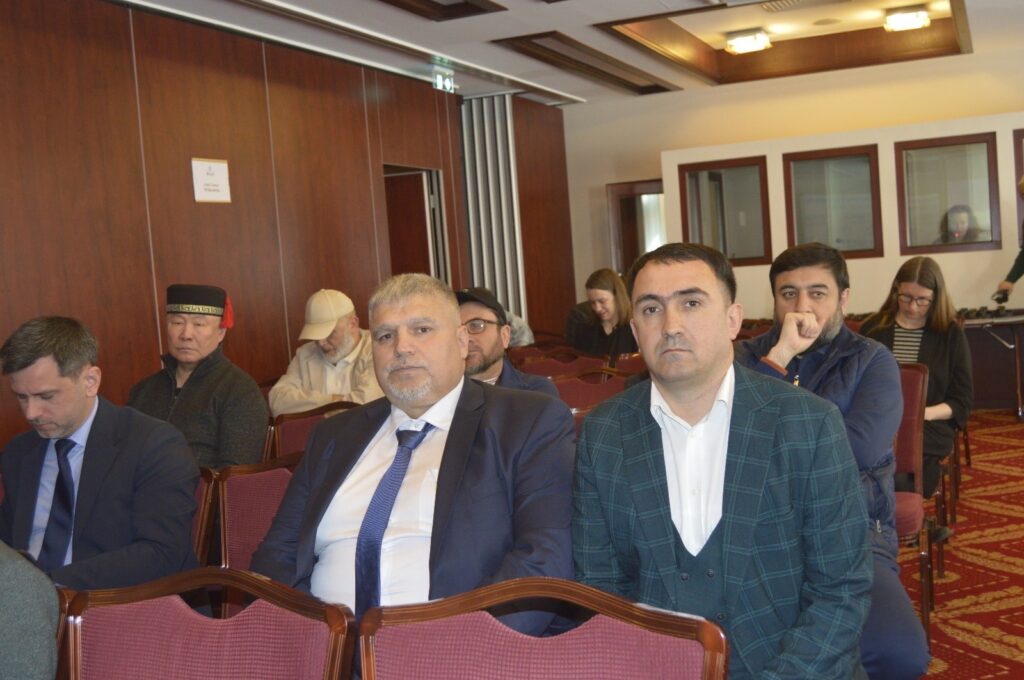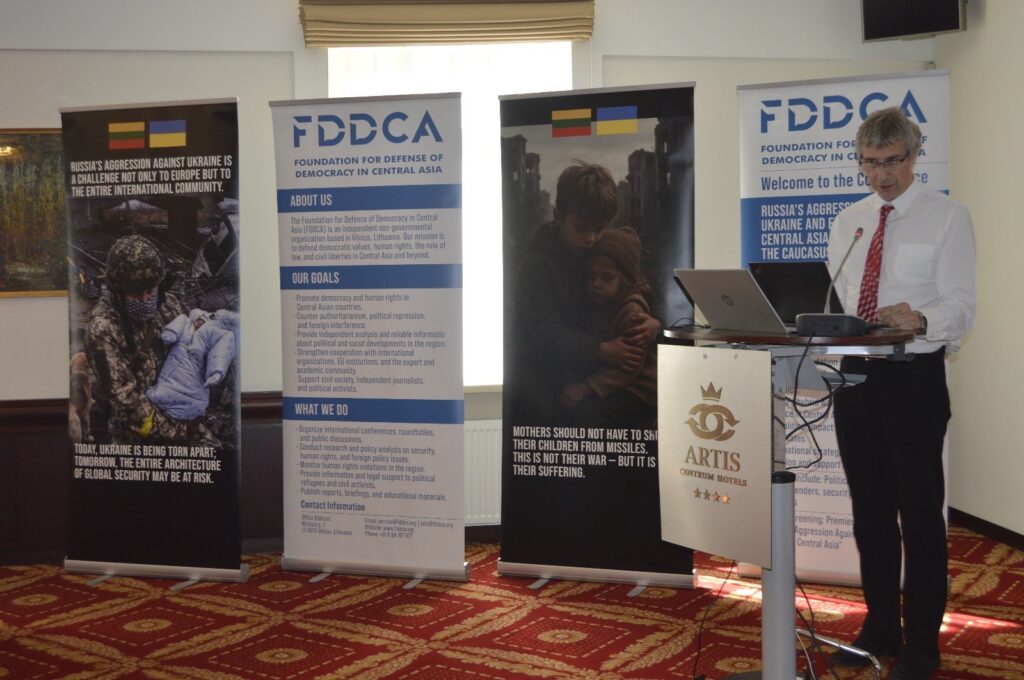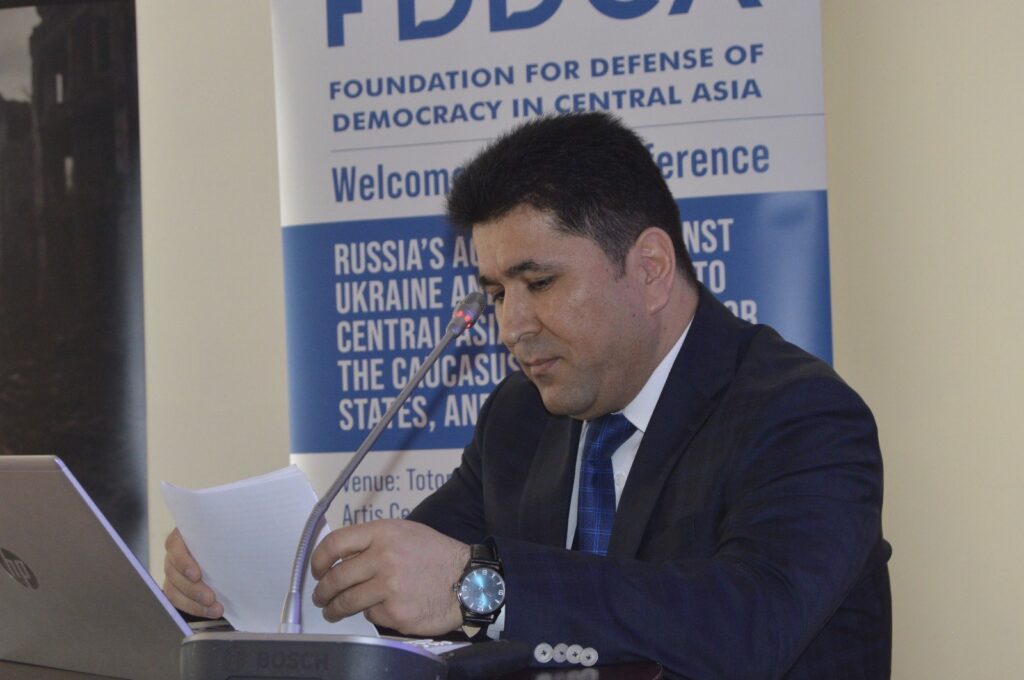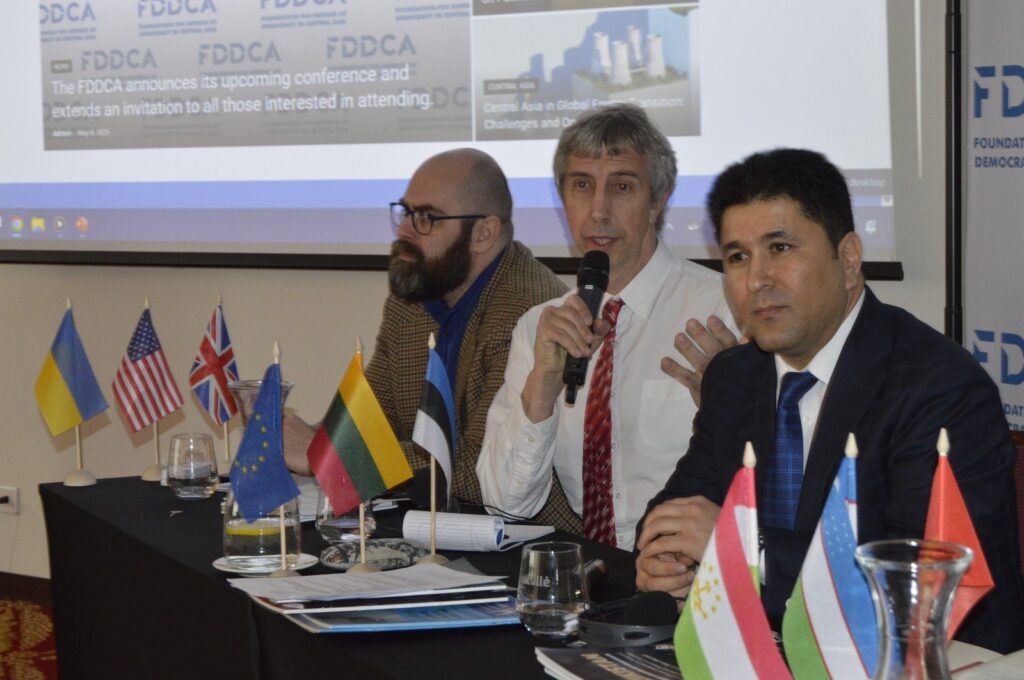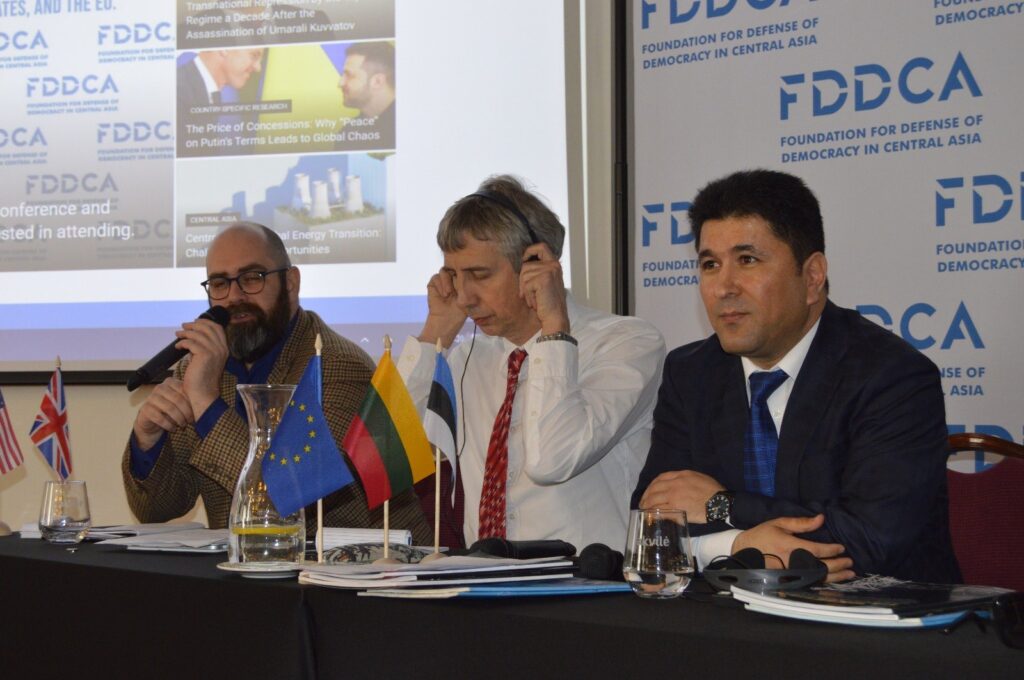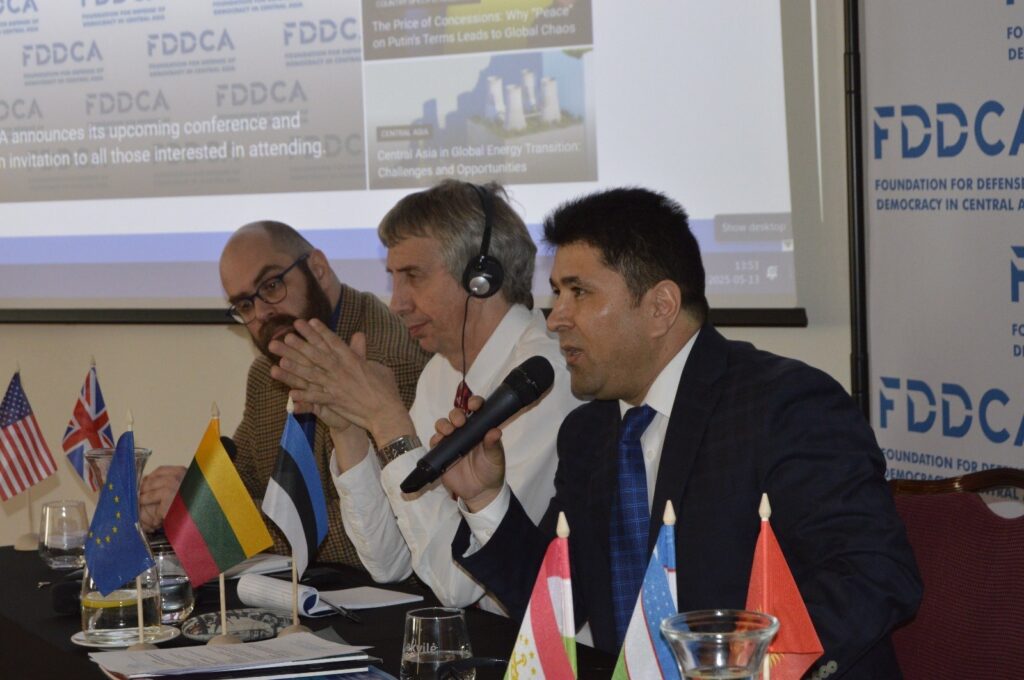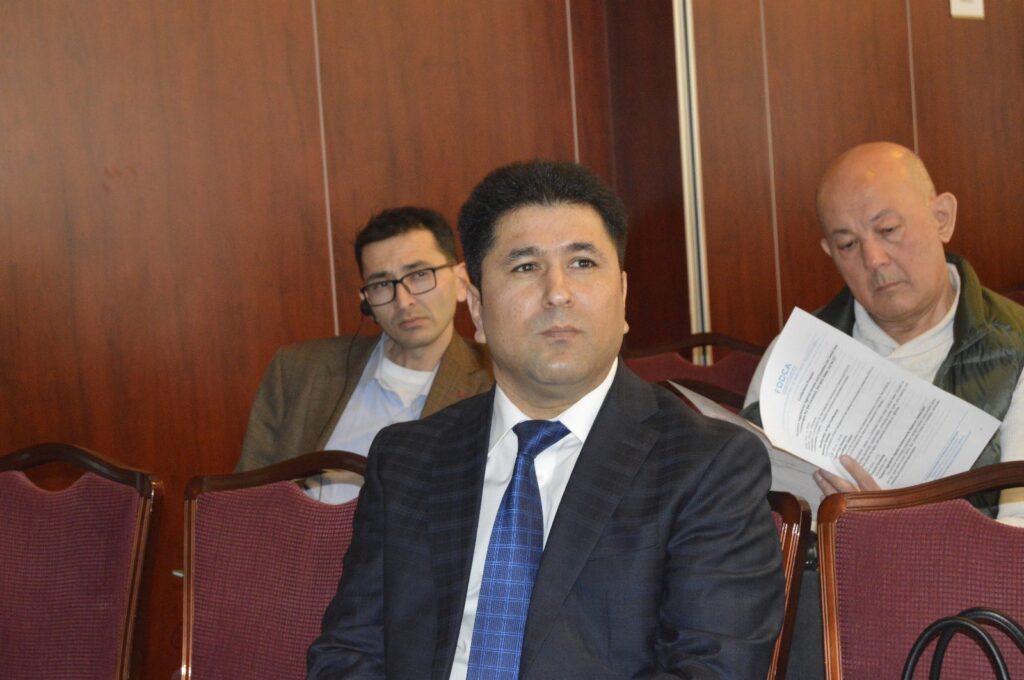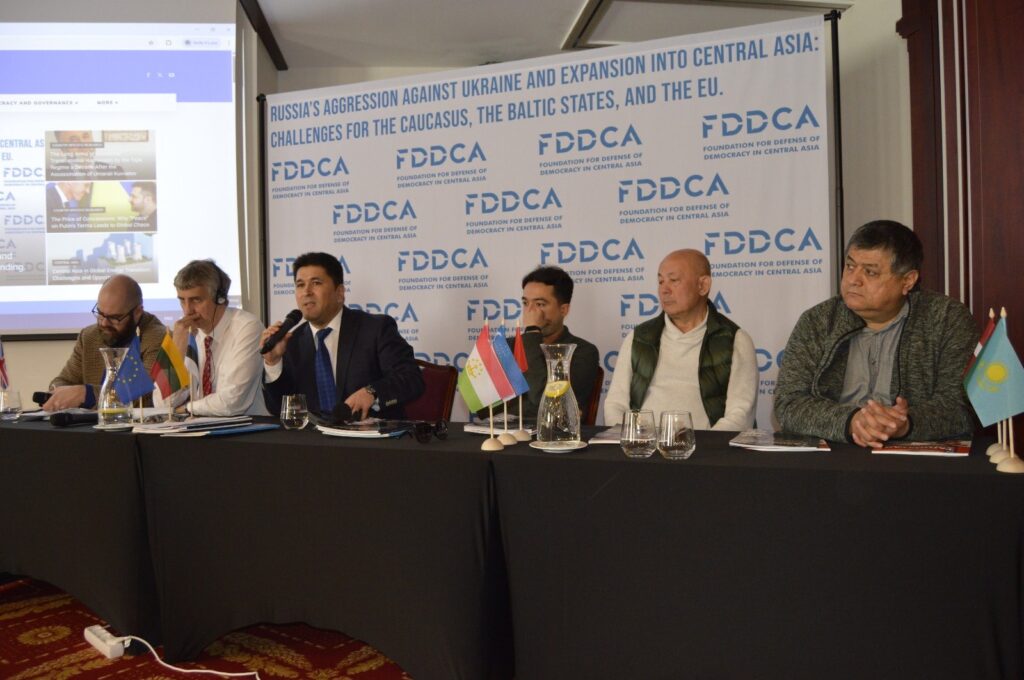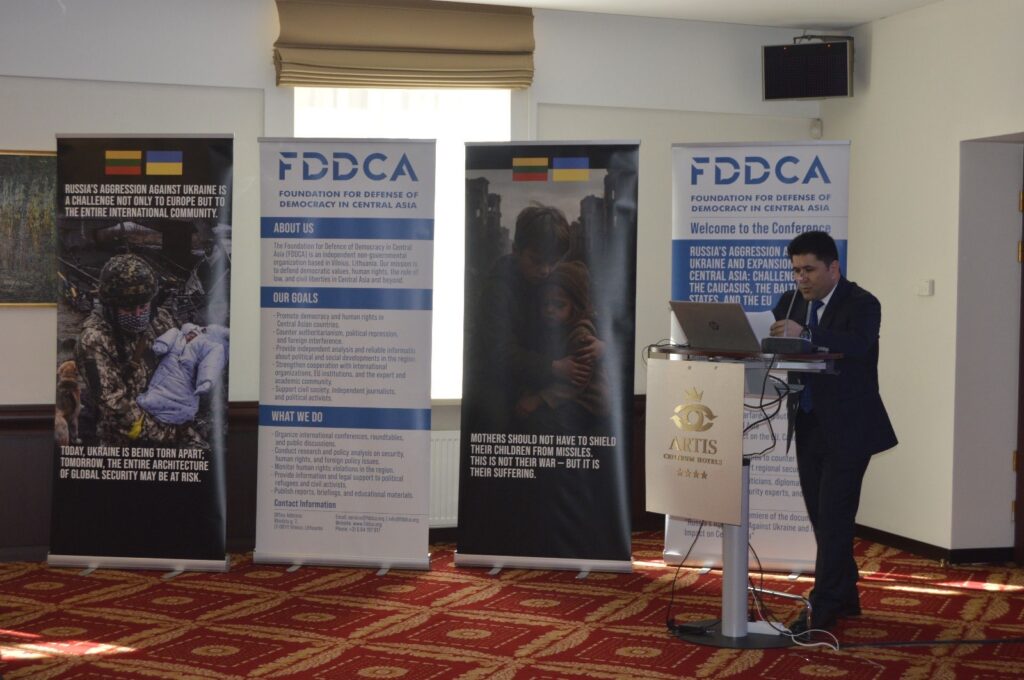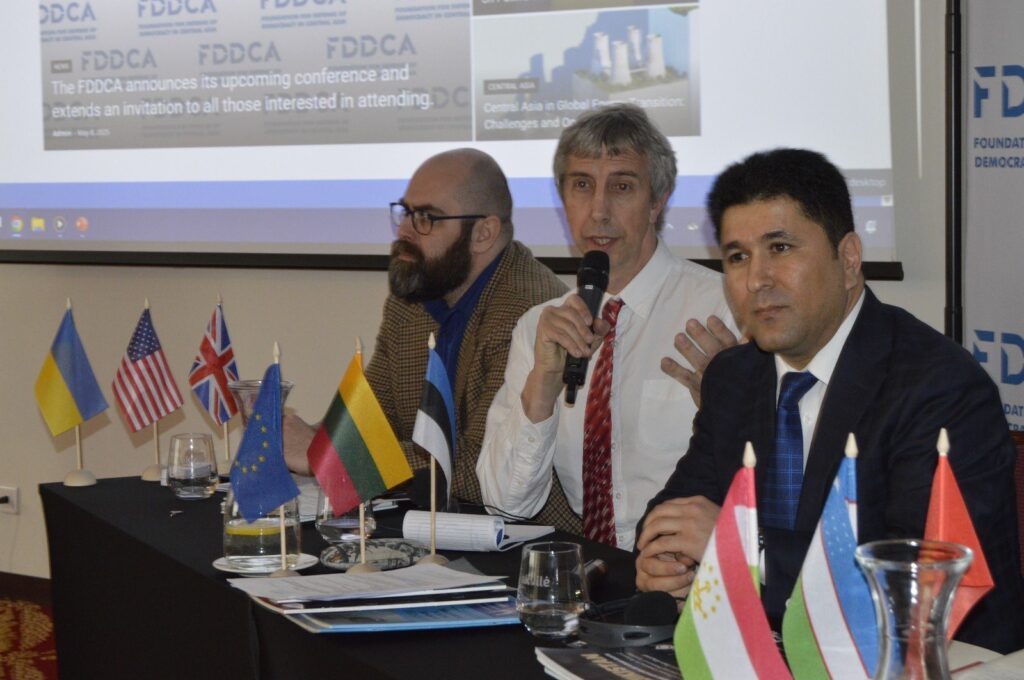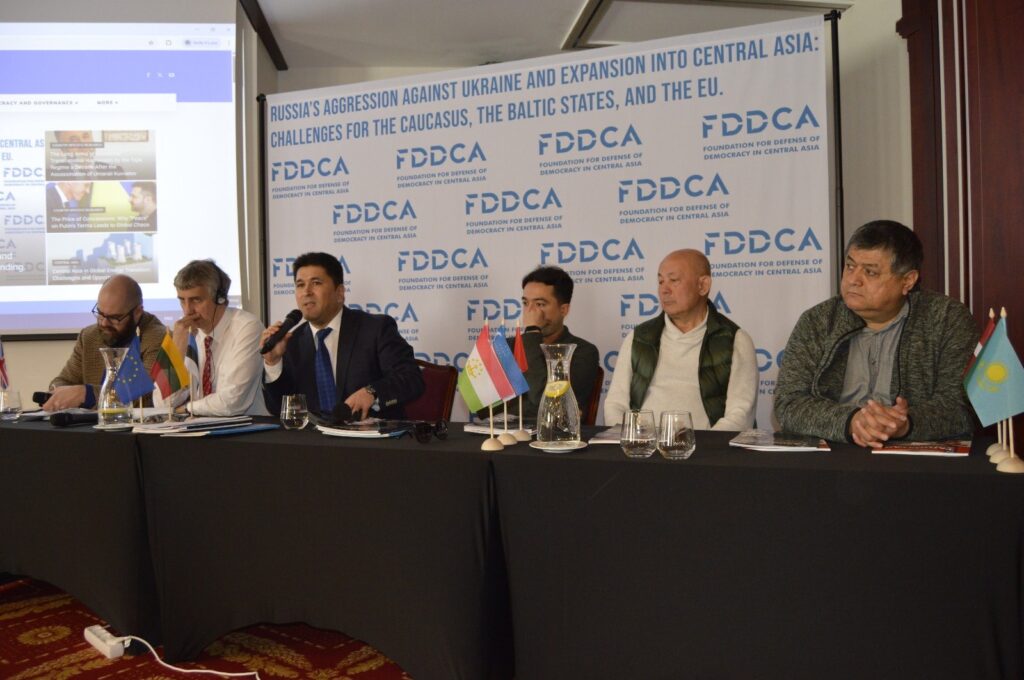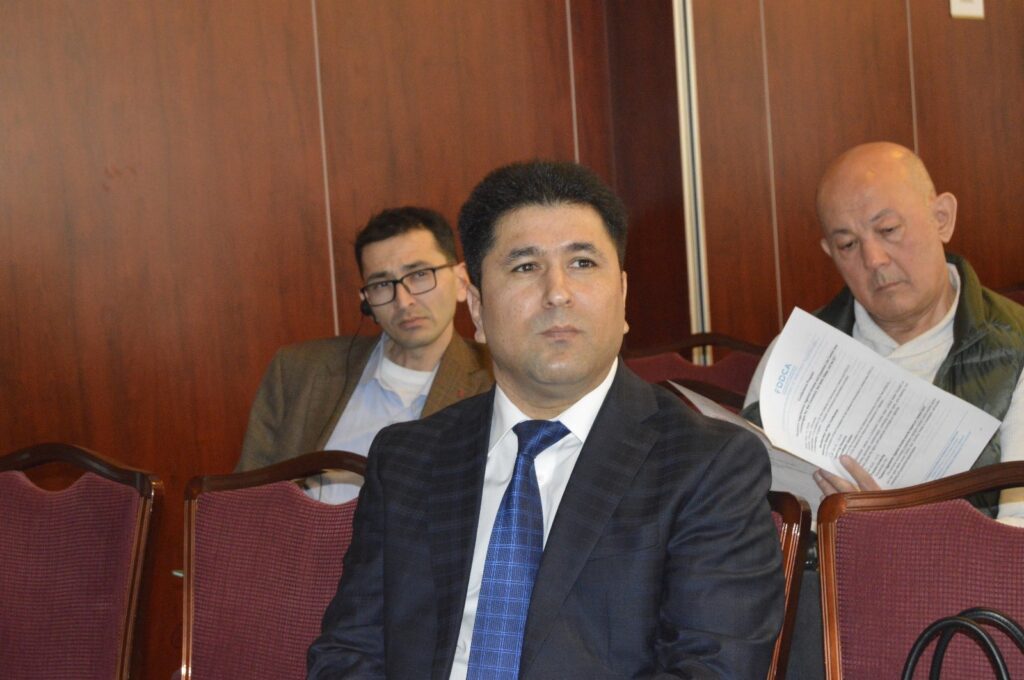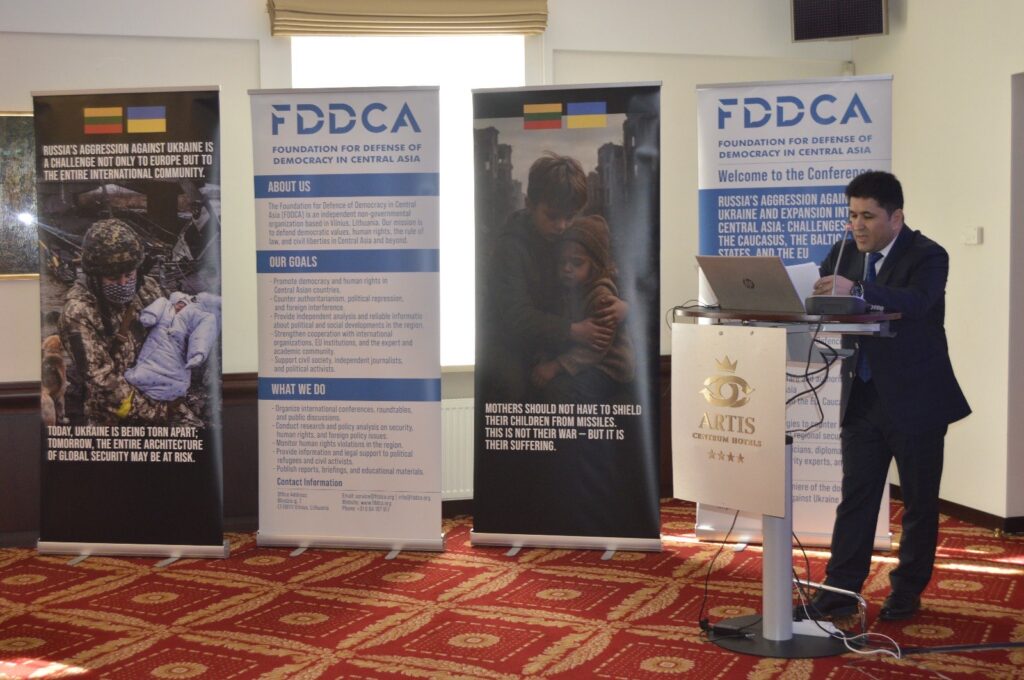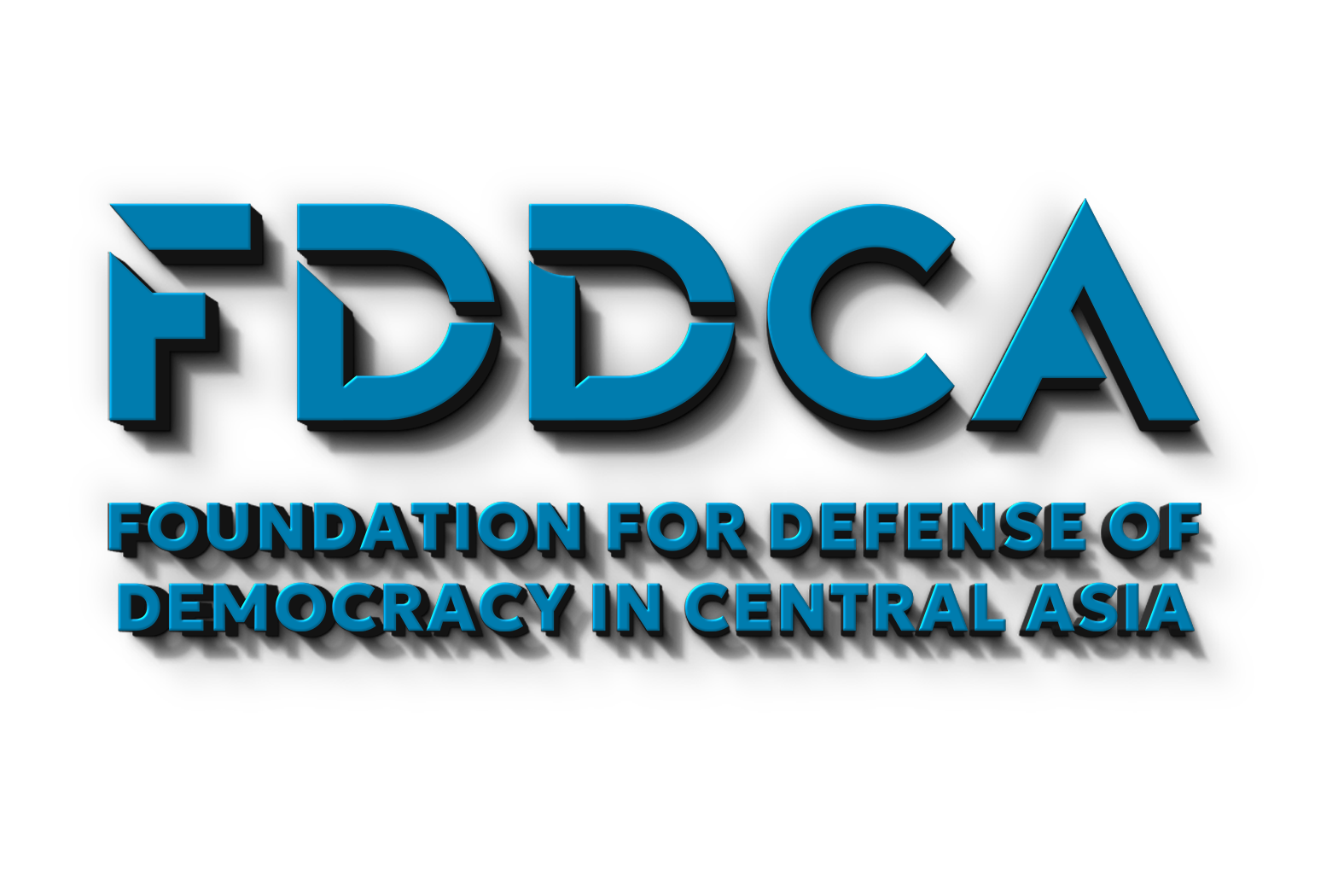We, the participants of the international conference held on May 13, 2025, in Vilnius under the auspices of the Foundation for the Defense of Democracy in Central Asia — representatives of civil society, human rights organizations, political movements, and experts in the field of security and regional policy — declare the following:
- Russia’s aggression against Ukraine — a global challenge to international security
We firmly condemn the invasion of the sovereign territory of Ukraine by the Russian Federation, which began in 2014 and escalated on an unprecedented scale in 2022. This full-scale war — the most brutal and blood-soaked on the European continent since the Second World War — constitutes a flagrant violation of the UN Charter and a breach of international law.
The aggression carried out by such a major Eurasian power as Russia fundamentally undermines the foundations of European and global security and is accompanied by monstrous war crimes and a humanitarian catastrophe.
In the course of this unjustified intervention, hundreds of Ukrainian cities have been destroyed, tens of thousands of civilians — including women and children — have perished, and millions have become internally displaced persons and refugees. We express our sincere solidarity with the people of Ukraine, share in their pain, and call for the further strengthening of international support for Ukraine — in the military, humanitarian, economic, and political spheres.
- Central Asia — the next target of Russian expansion
The imperial ambitions of the Kremlin are not limited to the territory of Ukraine. Even now, propagandists serving the Russian regime are making unacceptable provocations against Russia’s neighbors across Eurasia. Both the Baltic States and Central Asia risk becoming the arena for Russia’s next hybrid intervention.
This intervention would be accompanied by support for authoritarian regimes, the suppression of nascent democratic culture, the export of repressive legislation, increased economic pressure, the use of energy blackmail, campaigns to misinform the population, information warfare operations, cyberattacks on critical infrastructure, and other violations of the national sovereignty of states in the region.
We issue a warning: by attacking Ukraine, the Russian regime has not merely embarked upon a military adventure, but has explicitly declared to the world its geopolitical aims. The restoration — under its leadership — of the former Soviet sphere of influence and the revision of the post-1945 world order are Moscow’s priorities, regardless of how it tries to justify itself.
Therefore, further delay in responding to the existential threat posed by the current Russian regime may result in the nations and republics of Central Asia losing regional control, falling into a vortex of instability, experiencing a surge of externally fueled extremism, and facing a new wave of authoritarian entrenchment. All these factors will only further set our nations back from prosperity, development, and genuine independence.
- The crisis in Tajikistan — a direct threat to regional and European security
While taking into account the alarming state of human rights and democracy across virtually the entire Central Asian region, we express particular concern regarding the internal situation in the Republic of Tajikistan.
In this most fragile of the post-Soviet regimes, a highly explosive combination of factors has taken shape: the absolute irremovability of power and complete lack of accountability within a personalized dictatorship; ongoing transactions involving military and territorial sovereignty with Russia and China; a growing disconnect between the youngest population in Central Asia and the gerontocracy that stifles it; a long-overdue need for social reforms and a regime deaf to its own people; a drift toward punitive justice and the introduction of draconian laws; unchecked corruption and an increasing crackdown on personal freedoms and religion.
The regime of Emomali Rahmon is conducting sweeping political repressions, which have already led to:
- mass emigration and outflow of the country’s labor force;
- social frustration and an inevitable reaction in the form of youth radicalization;
- escalation of the terrorist threat, including the activation of “ISIS– Khorasan” cells, in which citizens of Tajikistan make up a significant portion.
We emphasize that the current political course pursued by Dushanbe threatens not only the internal stability of the country, but also the security of the entire region and the broader Eurasian space.
- Democratization of individual republics and the region as a whole — a synchronous process
The example of the European Union demonstrates that profound democratic transformations in a single country cannot be sustainable so long as it remains surrounded by despotisms. The democratic wave must encompass the entirety of Central Asia. It may proceed at different speeds and with varying intensity, overcoming state-specific barriers — but only through collective movement toward a genuinely democratic alternative can Central Asia become a zone of shared prosperity, stability, and predictability for European partners.
We therefore express hope that liberal reforms in Uzbekistan will not be rolled back, and that Kazakhstan and Kyrgyzstan will continue along the path of protecting the rights and freedoms of individuals and citizens. We also hope for a shift in Turkmenistan’s domestic political climate and greater openness to the world. We are concerned by recent excesses related to attacks on press freedom, civil society institutions, the legal status of minorities, the independence of the legal profession, and the integrity of the judiciary in all Central Asian republics.
To jointly defend democracy in the region, it is necessary to form a unified database of such violations, consolidating the efforts of politicians, journalists, lawyers, human rights defenders, and monitoring organizations in each of the Central Asian states.
- Support for civil society — the key to resilience and democracy
Under conditions of authoritarian pressure and external interference, only a developed and protected civil society can resist the degradation of democratic institutions, the popularization of extremist ideologies and practices, and the encroachments of a repressive state apparatus.
In this context, we recognize the significance of the emergence of an integral platform in the form of the Foundation for the Defense of Democracy in Central Asia (FDDCA) as an international structure for:
- consolidating democratic efforts in the region;
- protecting human rights defenders, journalists, and opposition leaders;
- coordinating international legal and political support;
- developing alternative models for sustainable development, integration, and the implementation of democratic solutions.
- Recommendations: Strategic Measures for the Democratic Future of the Region
We recommend that the governments of democratic states in Europe and North America, the European Union, as well as relevant international organizations, adopt a set of coordinated measures in support of sustainable democratic development in Central Asia, including:
- support for the initiative to create a Strategic Alliance for Democracy and Security in Central Asia as a platform for coordinating international efforts;
- development of effective sanction-based, diplomatic, and institutional mechanisms of influence on regimes that systematically violate human rights and obstruct democratic transformations;
- prioritization of investments into the development of civil society institutions, the education system, independent judiciary, and the rule of law in the republics of Central Asia—as a key condition for ensuring regional stability and countering the expansionist policies of authoritarian powers;
- strengthening of international cooperation in the fight against hybrid threats and transnational repression, including politically motivated assassinations, enforced disappearances, abuse of extradition mechanisms, and misuse of international criminal prosecution instruments against opposition figures and critics of incumbent regimes;
- support for international recognition, organizational development, and institutional consolidation of the structures of democratic opposition representing the peoples of the Central Asian states.
Concluding Provisions: A Strategic Window of Opportunity for Central Asia
Central Asia must not be regarded as a buffer zone between authoritarian empires. The region has a full right to its own democratic future, to the freedom and dignity of its peoples, to sustainable development, to an equal and partnership-based dialogue with the world’s leading centers of power, to regional integration, and to participation in shaping the European and global security architecture.
The outcomes of the Vilnius Conference clearly indicate: in the context of mounting hybrid aggression, inaction is unacceptable. The international community faces a historic task—to adopt timely and principled decisions aimed at the protection of democratic values, human rights, and peace in Central Asia.
May 13, 2025
Vilnius
